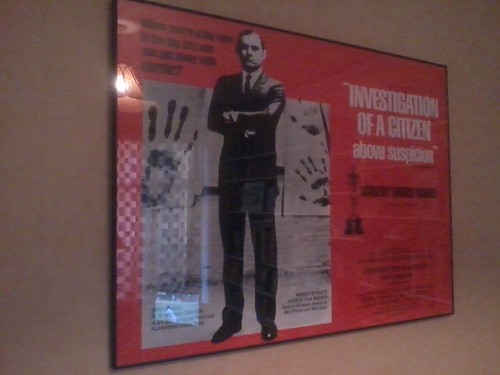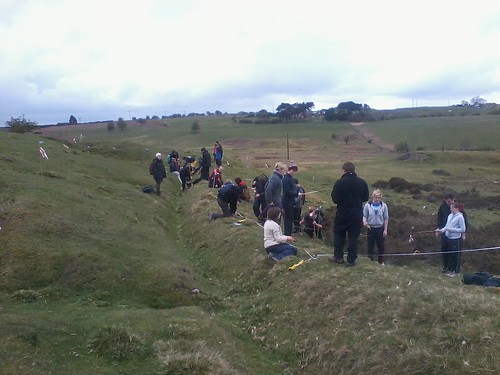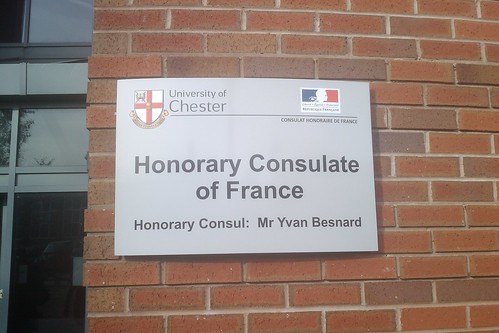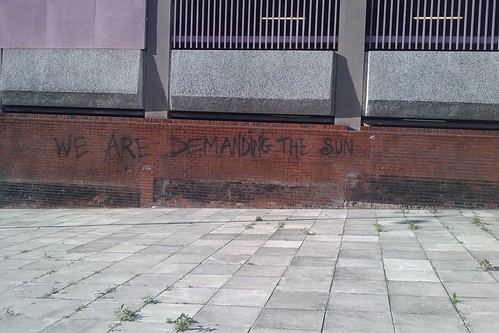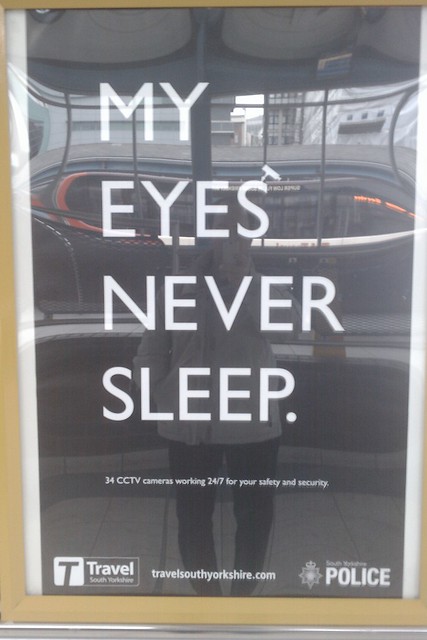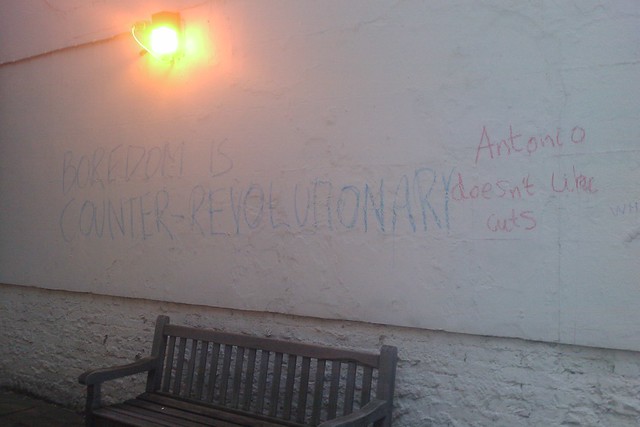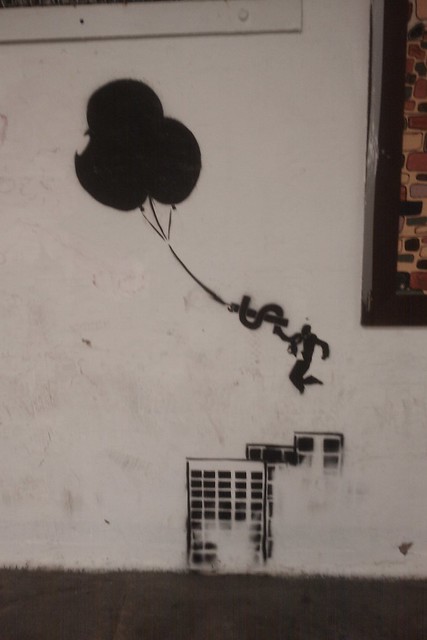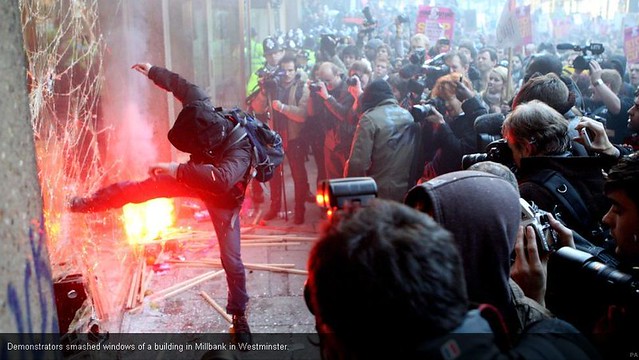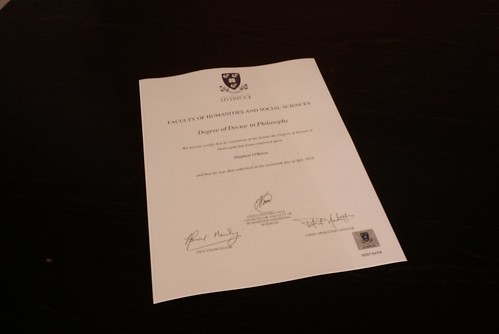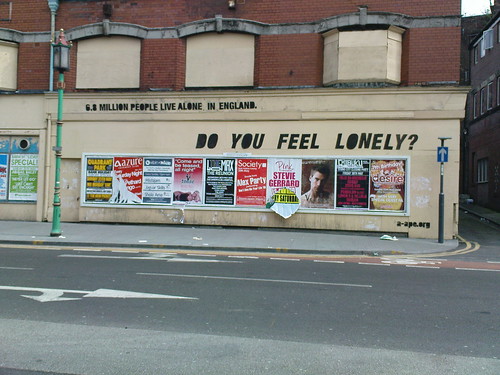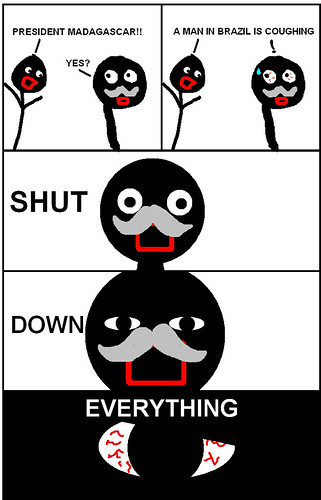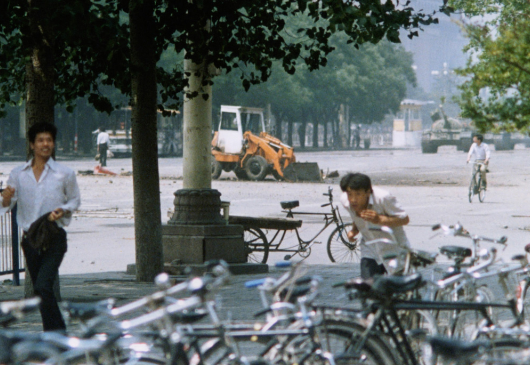On Sunday I went to see The Dark Knight Rises, before I ended up reading a review or finding out too much about it. My discussion here will CONTAIN SPOILERS, so avoid if you haven't seen the film yet. Also, it'll be a much better read if you know what I'm talking about.
My expectations were high, as I really liked The Dark Knight, but I feel they were fulfilled Getting a superhero film right is notoriously difficult, and the level of difficulty is increased when you've decided to use these archetypes to try and tell a serious story, and give the whole thing enough verisimilitude that you can suspend disbelief about characters like Batman or The Joker existing in what seems very much to be our world. It's a credit to Nolan that he's pulled this off, and has created a film which nicely rounds out the story he wanted to tell.
My favourite of the trilogy is still The Dark Knight, but The Dark Knight Rises is a close second. I feel Batman Begins is easily the weakest of the three. A somewhat weak first film with two good sequels is unusual, but that seems to be what happened.
There are a few comparatively minor things that I don't think completely work in The Dark Knight Rises. Given the running time, more time could have been spent showing us the kinds of inequality in Gotham which allow Bane to take over: as it is, one character tells us that it exists, but we never really get to see it. Similarly, when someone taken to what you've already set up as The Worst Prison In The World, the first thought of the viewer upon seeing it should not be "Oh, that seems all right". Apparently the thing in Room 101 that is the worst thing in the world is Tom Conti talking to you like a kindly uncle, which might be true, but is strange nonetheless.
I'm in two minds about the end. On the one hand, when Chekov's Autopilot finally goes off it seems like a bit of a copout, and makes the line I've used as my title ring a bit hollow. Nolan does deserve credit for making me think that he might actually Kill The Batman, though. Doing that would have left Michael Caine's Alfred with an unhappy ending, but maybe that's part of the price for saving Gotham? The ending which they went with is perfectly good, if perhaps a bit conventional.
Anyway, I really liked it. I still haven't read any reviews, so I can hunt those out and be told why I'm wrong, now.
Thursday, July 26, 2012
Saturday, June 30, 2012
This Year's Present
An original UK quad film poster for Investigation of a Citizen Above Suspicion (1970). It spent 40 years folded up before I got it from Amazon Marketplace. As my dad pointed out, this is probably the first thing I've bought that will get more valuable, although that's not why I bought it.
Monday, June 04, 2012
The Polished Surface of a Desk
From a letter by Raymond Chandler, which I saw on Letters of Note.A long time ago when I was writing for pulps I put into a story a line like "he got out of the car and walked across the sun-drenched sidewalk until the shadow of the awning over the entrance fell across his face like the touch of cool water." They took it out when they published the story. Their readers didn't appreciate this sort of thing: just held up the action. And I set out to prove them wrong. My theory was they just thought they cared nothing about anything but the action; that really, although they didn't know it, they cared very little about the action. The things they really cared about, and that I cared about, were the creation of emotion through dialogue and description; the things they remembered, that haunted them, were not for example that a man got killed, but that in the moment of his death he was trying to pick a paper clip up off the polished surface of a desk, and it kept slipping away from him, so that there was a look of strain on his face and his mouth was half open in a kind of tormented grin, and the last thing in the world he thought about was death. He didn't even hear death knock on the door. That damn little paper clip kept slipping away from his fingers and he just couldn't push it to the edge of the desk and catch it as it fell.
Wednesday, May 23, 2012
Hunky Dory
The fact that "Changes" is the first song on Hunky Dory (1971) is a useful crutch for an unimaginative writer. So here goes: the album represents a remarkable change from The Man Who Sold The World, with the Hard-Rock/Proto-Metal of the latter replaced by the 1970s pop sound of folk-memory. This is the Bowie that starts playing in your head when someone says "David Bowie". This is an album which contains not only "Changes", but also "Life On Mars" and "Oh! You Pretty Things", demonstrating that this is the start of Bowie's most fertile period.
One of the interesting things about reading someone else's opinions on music is that you're suddenly confronted with things you've been mishearing for years. I'm pretty sure that I'm not the only one who thought it was "Turn to face the strain" rather than "Turn to face the strange" on "Changes", although I was perhaps alone in hearing "Now the workers have struck for vain/'cos Lenin's on sale again" rather than "Now the workers have struck for fame/'cos Lennon's on sale again" in "Life on Mars".
While the album represents a change of direction musically, the lyrical themes are very consistent with The Man Who Sold The World: transcending the limits of humanity, occultism (The Nietzschian "Homo Superior" of "Oh! You Pretty Things" is supplemented by a casual reference to Himmler on "Quickand", an early indication as to where the darker part of Bowie's psyche will be heading in a few years), and insanity. This is also an album about fame, and Bowie chooses to wear his influences on his sleeve, with songs explicitly about Andy Warhol and Bob Dylan, and "Queen Bitch" commonly reckoned to be about Lou Reed (although Doggett's book makes a persuasive case for it being a jealous swipe at Marc Bolan's new-found stardom).
So here's the mystery: it's a really good album, with some excellent songs, so why wasn't it a massive success? The single of "Changes" failed to make the Top 40, which is so improbable it makes your head spin. The answer may be the lack of a central strand: all the elements of Bowie's success are here, but there's a lack of a central something to make the diverse elements come together cohesively.
But something is coming...
One of the interesting things about reading someone else's opinions on music is that you're suddenly confronted with things you've been mishearing for years. I'm pretty sure that I'm not the only one who thought it was "Turn to face the strain" rather than "Turn to face the strange" on "Changes", although I was perhaps alone in hearing "Now the workers have struck for vain/'cos Lenin's on sale again" rather than "Now the workers have struck for fame/'cos Lennon's on sale again" in "Life on Mars".
While the album represents a change of direction musically, the lyrical themes are very consistent with The Man Who Sold The World: transcending the limits of humanity, occultism (The Nietzschian "Homo Superior" of "Oh! You Pretty Things" is supplemented by a casual reference to Himmler on "Quickand", an early indication as to where the darker part of Bowie's psyche will be heading in a few years), and insanity. This is also an album about fame, and Bowie chooses to wear his influences on his sleeve, with songs explicitly about Andy Warhol and Bob Dylan, and "Queen Bitch" commonly reckoned to be about Lou Reed (although Doggett's book makes a persuasive case for it being a jealous swipe at Marc Bolan's new-found stardom).
So here's the mystery: it's a really good album, with some excellent songs, so why wasn't it a massive success? The single of "Changes" failed to make the Top 40, which is so improbable it makes your head spin. The answer may be the lack of a central strand: all the elements of Bowie's success are here, but there's a lack of a central something to make the diverse elements come together cohesively.
But something is coming...
Sunday, May 13, 2012
Thursday, March 15, 2012
The Merry Widow
The hundred million self-confident German masters were to be brutally installed in Europe, and secured in power by a monopoly of technical civilisation and the slave-labour of a dwindling native population of neglected, diseased, illiterate cretins, in order that they might have leisure to buzz along infinite Autobahnen, admire the Strength-Through-Joy Hostel, the Party headquarters, the Military Museum and the Planetarium which their Fuhrer would have built in Linz (his new Hitleropolis), trot round local picture-galleries, and listen over their cream buns to endless recordings of The Merry Widow. This was to be the German Millennium, from which even the imagination was to have no means of escape.
- Hugh Trevor-Roper, The Mind of Adolf Hitler (1953)
The Guardian's acquisition of Bashar and Asma al-Assad's emails makes me wonder if anyone's ever done a sociological analysis of the material culture choices made by dictators. The Assads, like Hitler, seem to go for a fairly straightforward bourgeois consumerism - a banality of culture to go alongside the banality of evil. Gaddafi, meanwhile, went for the full-on Tony-Montana-in-Scarface aesthetic. Further datapoints are required to spin the concept out to book-length, of course.
Thursday, March 08, 2012
The Condition of Stockport
There is Stockport, too, which lies on the Cheshire side of the Mersey, but belongs nevertheless to the manufacturing district of Manchester. It lies in a narrow valley along the Mersey, so that the streets slope down a steep hill on one side and up an equally steep one on the other, while the railway from Manchester to Birmingham passes over a high viaduct above the city and the whole valley. Stockport is renowned throughout the entire district as one of the duskiest, smokiest holes, and looks, indeed, especially when viewed from the viaduct, excessively repellent. But far more repulsive are the cottages and cellar dwellings of the working-class, which stretch in long rows through all parts of the town from the valley bottom to the crest of the hill. I do not remember to have seen so many cellars used as dwellings in any other town of this district.
- Friedrich Engels, The Condition of the Working Class in England (1845)
You have to wonder what he'd make of Merseyway, a piece of Le Corbusier-esque High Modernism which is increasingly inhabited by pawnbrokers shops. On the other hand, the description of it that I just gave tells you pretty much everything you need to know.
Wednesday, February 22, 2012
The Man Who Sold The World
This is the first of my pieces on David Bowie's 1970s albums, which I'm listening to and simultaneously reading about in Peter Doggett's book The Man Who Sold The World: David Bowie and the 1970s.
To someone who's main exposure to Bowie has been through singles compilations, this album, recorded in 1970, is something of a surprise. The glam-rock which made Bowie's name had yet to arrive, and we find ourselves very much at the tail end of the 1960s scene. The themes which would become Bowie trademarks: sexuality ("The Width of a Circle", "She Shook Me Cold"), violence ("Running Gun Blues"), madness ("All The Madmen"), the occult ("The Supermen") and dystopian futures ("Saviour Machine") are all present. The melodies themselves, however, are very much in the psychedelic rock/hard rock/acid rock/heavy rock which is pretty standard for the time. Going by Doggett's account, Bowie was never fully invested in the album, and much of it was created by other members of the production team
The one exception to this is the title track, which looks back in capturing something of the alienated deep-space chill of Bowie's only previous hit single "Space Oddity" (1969), and fits with the Bowie of the future in that it demonstrates his ability to give you something which sounds like nothing you've heard before. It's perhaps also the only song on the album in which the melody really matches the lyrical content. The latter is perhaps the bleakest thing this album has to offer, acting as a prescient commentary on the 1960s counter-culture, and perhaps on Bowie's fears about himself and his identity: everything you believe in is going to be sold out - and you're going to be the one who does it. Troubling stuff for someone who was only 23 when this was written and recorded, but we all have our moments.
So, this isn't destined to be one of my favourite albums, but it's an interesting look at the background from which Bowie's most successful period emerged. Next up: Hunky Dory.
To someone who's main exposure to Bowie has been through singles compilations, this album, recorded in 1970, is something of a surprise. The glam-rock which made Bowie's name had yet to arrive, and we find ourselves very much at the tail end of the 1960s scene. The themes which would become Bowie trademarks: sexuality ("The Width of a Circle", "She Shook Me Cold"), violence ("Running Gun Blues"), madness ("All The Madmen"), the occult ("The Supermen") and dystopian futures ("Saviour Machine") are all present. The melodies themselves, however, are very much in the psychedelic rock/hard rock/acid rock/heavy rock which is pretty standard for the time. Going by Doggett's account, Bowie was never fully invested in the album, and much of it was created by other members of the production team
The one exception to this is the title track, which looks back in capturing something of the alienated deep-space chill of Bowie's only previous hit single "Space Oddity" (1969), and fits with the Bowie of the future in that it demonstrates his ability to give you something which sounds like nothing you've heard before. It's perhaps also the only song on the album in which the melody really matches the lyrical content. The latter is perhaps the bleakest thing this album has to offer, acting as a prescient commentary on the 1960s counter-culture, and perhaps on Bowie's fears about himself and his identity: everything you believe in is going to be sold out - and you're going to be the one who does it. Troubling stuff for someone who was only 23 when this was written and recorded, but we all have our moments.
So, this isn't destined to be one of my favourite albums, but it's an interesting look at the background from which Bowie's most successful period emerged. Next up: Hunky Dory.
Thursday, February 02, 2012
Tuesday, January 17, 2012
1980s Science-Fiction Was Never Knowingly Under-Bleak
1995
After a period of increasing tension and escalating border incidents, full-scale war erupted between the Soviet Union and the People's Republic of China.
...
On October 7th, 1996, the Bundeswehr crossed the border between East and West Germany and began attacking Soviet garrison units still in the country.
...
While the political leadership of the European members of NATO debated the prudence of intervention, the U.S. army crossed the frontier.
...
1997
...On July 9th, with advanced elements of the 1st German Army on Soviet soil, the Red Army began using tactical nuclear weapons.
...
1998
The winter of 1997-98 was particularly cold. Civilian war casualties in the industrialized nations had reached almost 15% by the turn of the year, but the worst was yet to come. Communication and transportation systems were non-existent, and food distribution was impossible. In the wake of nuclear war came famine on a scale previously undreamed of...Plague, typhoid, cholera, typhus, and many other diseases swept the world's population. By the time they had run their courses, the global casualty rate would be 50%.
- Twilight: 2000 Referee's Manual (1984)
I downloaded the pdf of this a few years ago as part of an RPG Day promotion. It's eerie to think that people were sitting down to play this game at a time when the above seemed like a future that was more likely than not. The suggested campaign is pretty interesting, being Xenophon's Anabasis transposed to post-nuclear central Europe. If I can ever get a group together, I may even run it. I probably wouldn't use the original rules, as they're a bit too early 80s for me. I could probably kitbash something together based on Reign, though.
Tuesday, January 03, 2012
An Experiment With An Artist
Bowie, in particular, in a series of 'camp' incarnations (Ziggy Stardust, Aladdin Sane, Mr Newton, the thin white duke, and more depressingly the Blond Fuehrer) achieved something of a cult status in the early 70s. He attracted a mass youth (rather than teeny-bopper) audience and set up a number of visual precedents in terms of personal appearance (make-up, dyed hair, etc.) which created a new sexually ambiguous image for those youngsters willing and brave enough to challenge the notoriously pedestrian stereotypes conventionally available to working-class men and women. Every Bowie concert performed in drab provincial cinemas and Victorian town halls attracted a host of startling Bowie lookalikes, self-consciously cool under gangster hats which concealed (at least until the doors were opened) hair rinsed a luminous vermilion, orange, or scarlet streaked with gold and silver.
- Dick Hebdige, Subculture: The meaning of style (1979)
According to Wikipedia, one of those drab provincial cinema gigs was in my manor, just by where I went to secondary school. While I've been into Bowie for quite a long time now, my knowledge of his music comes pretty much entirely from radio play and singles collections - I know almost nothing about the albums, although some of them have excellent reputations.
For Christmas I got a copy of Peter Doggett's recent book The Man Who Sold The World: David Bowie and the 1970s, and copies of "The Man Who Sold The World" (1970) and "Hunky Dory" (1971). My plan is to listen to the albums as I read the relevant sections of the book. I may even blog about it here as I do it, although I'm pretty sure people have done that before.
Monday, December 19, 2011
I Survived The Great Stockport Tornado
I haven't been posting much recently, mostly because I've been working three different part-time jobs (two lecturing, one note-taking), and apart from the time spent travelling to them and doing them, I haven't been up to much other than writing lectures.
A couple of weeks ago a tornado happened in Stockport. More than that, it happened in Heaton Moor, just as I was walking home from the station. I didn't actually realise what was happening at the time, just that it was a bit windy and raining hard. The next day, the local news were interviewing a fireman clearing up some of the debris when he said that "Some people are saying it's like Armageddon". Really? What people? Where?
Above: Armageddon.
Saturday, October 29, 2011
Thursday, October 20, 2011
A Bullet For The Colonel
So Gadaffi's dead, which was kind of predictable. While I'd much rather have seen him in the dock at the ICC, it's probably much more fun shouting "SIC SEMPER TYRANNIS!" than "WE NEED AN EQUITABLE AND ROBUST SYSTEM OF INTERNATIONAL JUSTICE!"
And now the really hard bit starts in Libya...
And now the really hard bit starts in Libya...
Sunday, September 18, 2011
Wednesday, September 07, 2011
Wednesday, August 31, 2011
99 Problems, But A Pitch Ain't One
Edgeley Park from the Cheadle Stand. Note comedy head accidentally photobombing in the lower right.
It's a long time since I went to watch Stockport County. Despite them being my local club, the first football match I ever attended was Fulham away at Chester City in 1996. The second match I attended was Stockport, though, and I went quite a few times during my last year at school and my two years of Sixth-Form College. Those were probably the best years that Stockport have ever had, with players like Alun Armstrong, Mike Flynn, Jim Gannon, Sean Connelly, and Kevin Cooper. In the spring of 1998 I saw them finish 8th in the Championship, two places outside the playoffs for the Premier League.
Things are rather different now - last season saw them relegated out of the League for the first time since 1905. This seemed like a good time to return, so a couple of weeks ago me and my Dad went to see them at home to Ebbsfleet United. I confess to no longer knowing who's who in the Stockport squad - the most familiar name is new manager Dietmar Hamann, the former Liverpool and Germany player.
The game itself was good. While Stockport played the better football, they didn't create many chances - the more direct approach of Ebbsfleet was much more effective, and they were slightly unfortunate not to be at least a goal up at half-time. In the second half, however, Stockport created far more chances, with a string of crosses low across the box from the right going unfinished in increasingly comic/frustrating fashion. Eventually the pressure told, Chadwick heading home from close range after yet another break down the right. That was about 20 minutes from the end, but unfortunately Stockport conceded a soft goal from a set-piece about 10 minutes later, perhaps having lost concentration due to an attempted substitution. While there were more chances for Stockport, none were serious, and the game ended in a 1-1 draw. This was disappointing in that Stockport should really have won easily, but the point put them just outside the playoff places.
Sunday, July 31, 2011
My Favourite Parks Are Car Parks
When I was a teenager, Pulp were My Band. They were the band that made it OK to be me. In some ways they still are. This was proven by going to see their reunion gig in Hyde Park, about a month ago. I had seen them once before, at the Apollo in Manchester in 1998, and missed out on seeing them in Nottingham in 2001 for lack of anyone to go with. The fact that, in addition to my sister (who was the first member of the family to be into Pulp), I would be seeing the gig alongside Rachael T. and Vicky D. (née S.), lent the whole gig a sixth-form air.
I arrived with Rachael and we spent some time drifting between various stages. The first band I paid any real attention to were The Horrors, who I'd never really listened to before, but rather liked, in a Bowie/Psychadelic Furs way. I was left alone for The Hives, who were great fun, and brought back lots of memories of Nottingham in 2001. In particular, Pelle Almqvist's between-song banter was a highlight: "We're The Hives and we're from Sweden! Land of ice and snow, and lots of other shit that you've never heard of!" The new stuff sounded a lot like the old stuff, but I think that's forgiveable for a garage band made good.
TV on the Radio are next on the line-up, but I have no memory of them, and I'm pretty sure this is because I was eating and drinking with the others. I did encourage people back to the main stage, where Grace Jones, who Caitlin had seen before, was doing her malfunctioning-replicant-of-pop act. As Caitlin had promised, Jones did indeed do the hula-hoop for the entirety of "Slave to the Rhythm". Apparently there wasn't room in the setlist for "Warm Leatherette", though, which was a disappointment.
After Jones' set finished, people began streaming past us to gather for Pulp's set. This provided the by-now-standard bit of crowd-based entertainment, as one group of lads passed us with one of them saying worriedly "No, we've done it all - the whole bag!" A noticeable difference between this and the Blur gig a couple of years ago was the good-natured aspect to the crowd - there was no barrage of empty bottles. I'm not saying that this proves that Pulp fans are better people than Blur fans, but, y'know: it does.
Given that Pulp had been away for a decade, it was interesting to see what they now looked like. A feature of 1990s Jarvis Cocker had been his ability to shift from high-cheekboned model to Alan Bennett-esque geek by the simple means of putting on some glasses. These days he sports a hip 1970s sociology lecturer-look, and carries it off well. Nick Banks and Candida Doyle look much the same, but Mark Webber now unaccountably looks like Jerry Lewis. Russell Senior added his usual gothic chill, althogh the razor-sharp cheekbones familiar from the cover of "His 'N' Hers" have been filled out bypies time.
They only had an hour for their set, due to being in the middle of central London, and this meant that they had to focus mostly on the main hits, with little time for delving into the more obscure parts of the back-catalogue. They started with "Do You Remember The First Time?" and "Pink Glove", which are probably my favourite songs they ever did. Rachael made her presence felt early on, with energetic dancing clearing a small space around her. With it being a London festival gig, "Mile End" from the "Trainspotting" soundtrack was a gimmie, as was the Acid House memoir "Sorted For E's and Wizz". A particular highlight for me was F.E.E.L.I.N.G.C.A.L.L.E.D.L.O.V.E. - never a single, but a genuinely excellent track from the seminal album. The only track from the underrated "This is Hardcore" was the title track, with it's bleak evocation of post-fame comedown. This was followed with "Sunrise" a track from the last album "We Love Life". It wasn't a massively well-received album, and there are far better tracks on it than this one, so this seemed like a poor choice, specially with such a constricted set.
By this point, Vicky was becoming increasingly antsy, as her and Andrew were probably going to have to leave early to catch the last train - would they be there for "Common People"? It turned out that they would, just the other side of "Bar Italia", another gimmie for any gig taking place to close to Soho. "Common People" itself was met with the crowd going predictably wild, and Cocker didn't really need to provide the vocals, as everyone else was singing it anyway. A further highlight came just after the song, as Jarvis could be heard saying to Russell Senior "Come on y'grumpy bastard - give 'em a clap!"
All in all, it was one of the best gigs I've ever been to - helped, of course, by the fact that it's one of the only gigs I've been to where I know pretty much all the words to the songs. It's now very tempting to haunt eBay in an effort to find the old singles that I don't have.
I arrived with Rachael and we spent some time drifting between various stages. The first band I paid any real attention to were The Horrors, who I'd never really listened to before, but rather liked, in a Bowie/Psychadelic Furs way. I was left alone for The Hives, who were great fun, and brought back lots of memories of Nottingham in 2001. In particular, Pelle Almqvist's between-song banter was a highlight: "We're The Hives and we're from Sweden! Land of ice and snow, and lots of other shit that you've never heard of!" The new stuff sounded a lot like the old stuff, but I think that's forgiveable for a garage band made good.
TV on the Radio are next on the line-up, but I have no memory of them, and I'm pretty sure this is because I was eating and drinking with the others. I did encourage people back to the main stage, where Grace Jones, who Caitlin had seen before, was doing her malfunctioning-replicant-of-pop act. As Caitlin had promised, Jones did indeed do the hula-hoop for the entirety of "Slave to the Rhythm". Apparently there wasn't room in the setlist for "Warm Leatherette", though, which was a disappointment.
After Jones' set finished, people began streaming past us to gather for Pulp's set. This provided the by-now-standard bit of crowd-based entertainment, as one group of lads passed us with one of them saying worriedly "No, we've done it all - the whole bag!" A noticeable difference between this and the Blur gig a couple of years ago was the good-natured aspect to the crowd - there was no barrage of empty bottles. I'm not saying that this proves that Pulp fans are better people than Blur fans, but, y'know: it does.
Given that Pulp had been away for a decade, it was interesting to see what they now looked like. A feature of 1990s Jarvis Cocker had been his ability to shift from high-cheekboned model to Alan Bennett-esque geek by the simple means of putting on some glasses. These days he sports a hip 1970s sociology lecturer-look, and carries it off well. Nick Banks and Candida Doyle look much the same, but Mark Webber now unaccountably looks like Jerry Lewis. Russell Senior added his usual gothic chill, althogh the razor-sharp cheekbones familiar from the cover of "His 'N' Hers" have been filled out by
They only had an hour for their set, due to being in the middle of central London, and this meant that they had to focus mostly on the main hits, with little time for delving into the more obscure parts of the back-catalogue. They started with "Do You Remember The First Time?" and "Pink Glove", which are probably my favourite songs they ever did. Rachael made her presence felt early on, with energetic dancing clearing a small space around her. With it being a London festival gig, "Mile End" from the "Trainspotting" soundtrack was a gimmie, as was the Acid House memoir "Sorted For E's and Wizz". A particular highlight for me was F.E.E.L.I.N.G.C.A.L.L.E.D.L.O.V.E. - never a single, but a genuinely excellent track from the seminal album. The only track from the underrated "This is Hardcore" was the title track, with it's bleak evocation of post-fame comedown. This was followed with "Sunrise" a track from the last album "We Love Life". It wasn't a massively well-received album, and there are far better tracks on it than this one, so this seemed like a poor choice, specially with such a constricted set.
By this point, Vicky was becoming increasingly antsy, as her and Andrew were probably going to have to leave early to catch the last train - would they be there for "Common People"? It turned out that they would, just the other side of "Bar Italia", another gimmie for any gig taking place to close to Soho. "Common People" itself was met with the crowd going predictably wild, and Cocker didn't really need to provide the vocals, as everyone else was singing it anyway. A further highlight came just after the song, as Jarvis could be heard saying to Russell Senior "Come on y'grumpy bastard - give 'em a clap!"
All in all, it was one of the best gigs I've ever been to - helped, of course, by the fact that it's one of the only gigs I've been to where I know pretty much all the words to the songs. It's now very tempting to haunt eBay in an effort to find the old singles that I don't have.
Saturday, July 09, 2011
What We Talk About When We Talk About Gloves
One week ago I met Yvette and Dominik in a pub in Wood Green to watch the Klitschko vs. Haye fight. I'd never really watched a boxing match before, but fortunately Yvette was on hand to give some expert opinion. We got there well before the start and bagged a table, which was a good job, as the pub soon filled with aggressive north London blokes.
The fight itself was disappointing as a spectacle, although as it went the full 12 rounds at least no-one could feel they didn't get value for money. It was good to be watching it with someone who knew what they were talking about, but somewhere at the back of the pub there was a guy who kept shouting "JUST FUCKING DO HIM!", so all options were covered. There was some booing in the pub at the points-win being given to Klitschko, but even I could tell that he'd easily had the best of the fight. I'm told there was a small Ukrainian contingent in the pub who seemed to have brought their own vodka, but I don't remember seeing them.
We stayed far too long in the pub afterwards, drinking. During the fight the place had been so crowded and the night so warm that condensation had started forming on all suitable surfaces. This made the men's toilets pretty inadvisable. There was also an Irish guy in there who came very close to accidentally pissing on me rather than into a urinal, and I wasn't sure what the correct etiquette for that situation was.
We were eventually thrown out of the pub at its 2:15 closing time. On the walk back to my sister's flat an urban fox darted across the road some distance ahead of me, so it was all good.
The fight itself was disappointing as a spectacle, although as it went the full 12 rounds at least no-one could feel they didn't get value for money. It was good to be watching it with someone who knew what they were talking about, but somewhere at the back of the pub there was a guy who kept shouting "JUST FUCKING DO HIM!", so all options were covered. There was some booing in the pub at the points-win being given to Klitschko, but even I could tell that he'd easily had the best of the fight. I'm told there was a small Ukrainian contingent in the pub who seemed to have brought their own vodka, but I don't remember seeing them.
We stayed far too long in the pub afterwards, drinking. During the fight the place had been so crowded and the night so warm that condensation had started forming on all suitable surfaces. This made the men's toilets pretty inadvisable. There was also an Irish guy in there who came very close to accidentally pissing on me rather than into a urinal, and I wasn't sure what the correct etiquette for that situation was.
We were eventually thrown out of the pub at its 2:15 closing time. On the walk back to my sister's flat an urban fox darted across the road some distance ahead of me, so it was all good.
Tuesday, June 28, 2011
People Ask Me Why I Don't Like Coldplay
'Los Gatos'...was also the last thing The Sleepers ever recorded, as the group lost patience with their out-of-control lead singer. "'Los Gatos' shows the effects of speed," says Michael Belfer. "We had to drive Ricky back to his grandparents every night while we were recording; if he went into the city, he'd disappear. One night we tricked him: we said we'd take him to the speed dealer. All five of us were in a Mustang and as we turned down the ramp onto Highway 101. Ricky freaked. We were holding him down but his legs shot out and he kicked the transmission into reverse. There was an incredible bang and the car just coasted. The band just lost it. They dragged him out and beat him up. He was black and blue. He sang 'Los Gatos' just after that."
- Jon Savage, sleevenotes to Black Hole: Californian Punk 1977-80
Friday, June 17, 2011
No Time To Be 21
With age comes the realization that of all William Gibson's protagonists, the one you resemble most closely is Coretti from "The Belonging Kind".
Tuesday, May 31, 2011
Write What You (Don't Really) Know
For the first time in a long time I've gotten around to doing a little bit of non-academic writing. It's only a fragment, but unlike everything else I've done before this is - at least nominally - part of something larger. Long time readers may remember me pondering writing a science-fiction novel set in Athens, and this is the first bit of progress I've made with it. The fragment, called "ANTHINT", is up over at N.A.O.W.F.I.T.
Comments are, as ever, welcome.
Thursday, May 26, 2011
Interpretations
I was clearly wrong in assuming that the American operations had had little effect on this valley - they had freed up the antique smuggling market.
'And what have you found out about the life of this ruined city?'
'I don't understand. What do you mean?'
I tried again. 'Have you found out roughly what the plan of the city was... where the bazaar was, the religious schools?'
'No'
'The smaller mosques, the gardens, the military barracks?'
'No. You are asking difficult questions. We just dig downwards and find a jumble of things. It can be very frustrating - yesterday we dug a pit ten metres wide and didn't find anything worth anything.'
'What did the ordinary houses look like?'
'Like this house - built from mud, but the rooms were very small and crowded, and many of them were multistoried, perhaps because they were built on such a steep cliff. We can sometimes guess which the better houses were from the state of their foundations. But it doesn't help us find the treasure - many of the houses have nothing in them. Nothing at all.'
Abdullah interrupted, 'I think I've found a bathhouse, there were a lot of pumice stones in it and guttering which brought the water up to the ridge from a spring three kilometres away.'
'That is very interesting. Anything else.'
'No.'
'What do you think about the people who lived here?'
'Gamesters,' said Bushire, and everyone laughed in agreement. 'We find so, so many playing pieces like this bronze dice. This old man,' Bushire said pointing to a toothless villager, 'found a whole set of beautifully carved ivory chessmen a month ago, in one of the smallest houses on the hill. Our ancestors weren't Taliban.' The Taliban banned chess. 'And he's just sold a wonderful carved wooden door, one and a half metres high, with tigers and hunting scenes, to a merchant from Herat for a lot of money.'
'How much do you sell these objects for?'
'This,' replied Bushire, holding up the twelfth-century ewer with its bold wave pattern, 'is worth one or two American dollars - good money.'
- Rory Stewart, The Places In Between (2004)
Thursday, April 28, 2011
Warm Leatherette

A couple of weeks ago, I managed to pass my driving test at the second opportunity. Today I completed the Pass Plus course, which covers things like rural driving and city driving. The last bit was motorway driving, which meant I had to drive to Leeds and back. Motorways aren't as difficult as I'd thought they might be, although travelling at high speeds is something I'll have to get used to. And I can't believe that some people drive for the first time on a motorway without having done any instruction.
In a couple of weeks I'll get the Pass Plus certificate, which will let me sort out a deal on insurance. Then I'll be loose on the roads, so some people may be more likely to get a visit.
Today will also be the last time I ever see my driving instructor, probably, which will be a bit weird, as I've seen him for two hours a week for the last eight months.
Tuesday, April 26, 2011
Germ Free Adolescents
I woke up this morning and found Twitter telling me that Poly Styrene, singer with the under-rated punk band X-Ray Spex, had died of cancer at 53. Here's their appearance on Top of the Pops in 1978, doing the single "Germ Free Adolescents":
Thursday, March 31, 2011
A Blast from the Past
You don't expect to hear about people being arrested for possessing Semtex anymore: up-to-the-minute British terrorism seems to involve explosives made in your kitchen, which I suppose shows that the drugs trade is better funded than Islamic fundamentalism. Semtex, like the phrase "Christmas bombing campaign", belongs to a bygone era. It's only a matter of time before Peter Kay does a "Do you remember the Provos?" routine.
Thinking about it, I'm also amazed that Luke Haines has never formed a band called "Christmas Bombing Campaign", but that's another matter.
Friday, March 25, 2011
The Dustbin of History
I've deliberately not been commenting on Libya here, for fear that I'll end up issuing orders to General Steiner, but a turn of phrase in one of Gaddafi's speeches this week conjured something up from memory:
You are pitiful isolated individuals; you are bankrupts; your role is played out. Go where you belong from now on - into the dustbin of history!
- Trotsky to the Mensheviks, at the Second All-Russian Congress of the Soviets, 25 October 1917
"The dustbin of history" is one of our terms for finality, for putting history behind us, where it seems to belong. There it was as Trotsky spoke on the stage of world history, our present-day ironies curling around him like an invisible snake. There it was in Hanover, New Hampshire, materializing right before your eyes if you were reading a certain story in a certain moment: no thing of the past or even for it, but a trap, a death sentence, or maybe a goal, a promised land, that can be found at any time. It can suck you in; perhaps it can be escaped. Leon Trotsky consigned the Mensheviks to the dustbin of history in 1917, and there they remain, with his shade now keeping their company.
- Greil Marcus, The Dustbin of History (1995)
Saturday, March 12, 2011
Monday, February 14, 2011
You Could Leave Your Door Open
The menace of the blackout gangs reached the headlines with the Skipton Street murder of seventeen-year-old James Bolitho Harvey, on Saturday 21 March 1942. Harvey and his younger brother had come out of the Elephant and Castle station at midnight on their way home from a West End show. They went to the coffee stall and then towards the stop for the Brixton tram. Almost at once, they were set upon in the dark by a gang seeming to consist of seven men, though only three were caught. Both boys were robbed, Harvey was beaten to death with a lead-weighted cosh, his fifteen-year-old brother kicked into semi-consciousness. Witnesses at the coffee stall heard their screams but assumed that it was yet another 'drunken squabble such as we often hear around here'. 'I'll never forgive myself for not going,' said one of the men at the stall.- Donald Thomas, An Underworld At War: Spivs, Deserters, Racketeers and Civilians in the Second World War (2003)
My dad's mother, living in London during the Blitz, used to wander around the streets during air-raids rather than use the public air-raid shelters, which she believed to be wretched hives of scum and villainy*. The book suggests that she wasn't all that wrong.
* Not a direct quote.
Friday, February 04, 2011
Revolutionary Research Methodology
I've been refraining from commenting on Egypt here, on the basis that I don't know anything about Egypt, and that my main opinion - that an Egyptian democracy would be better than an Egyptian dictatorship - doesn't add much to the discourse.
Yesterday, watching the BBC's piece about the role of the internet in the protests, I was struck by how vast and diffuse the body of data is. Anyone who wants to write a history of the 25th January movement is going to have to get to grips with Facebook pages, Twitter posts, mobile-phone videos spread across a number of different sites. And that's without even factoring the ephemerality of those sources in. Somewhere in academia, someone must surely have begun working on research methodologies for the online age: I'd be really interested to see them.
Yesterday, watching the BBC's piece about the role of the internet in the protests, I was struck by how vast and diffuse the body of data is. Anyone who wants to write a history of the 25th January movement is going to have to get to grips with Facebook pages, Twitter posts, mobile-phone videos spread across a number of different sites. And that's without even factoring the ephemerality of those sources in. Somewhere in academia, someone must surely have begun working on research methodologies for the online age: I'd be really interested to see them.
Thursday, January 06, 2011
Friday, December 31, 2010
An Idiosyncratic History of the Music Video, Part 3
Ridicule is nothing to be scared of.
One for panto season this, but there's also the fact that the video to Adam & the Ants' Prince Charming (1981) is, from about 1.40 in, one of the finest music videos ever made.
The video serves to illustrate something that I think is missing from chart music at the moment. At some point in the late 1980s or early 1990s, pop music lost its ability to be as gloriously, brilliantly strange as this. It's probably to do with the increasing development of manufactured acts. Acts have always been manufactured to some extent, of course, but up until the 1980s it was a question of management finding a subcultural scene which developed from below and developing acts from it. The New Romantics are an excellent case in point. In the era of The X Factor the programme is its own scene, allowing things to be controlled almost completely from above.
One for panto season this, but there's also the fact that the video to Adam & the Ants' Prince Charming (1981) is, from about 1.40 in, one of the finest music videos ever made.
The video serves to illustrate something that I think is missing from chart music at the moment. At some point in the late 1980s or early 1990s, pop music lost its ability to be as gloriously, brilliantly strange as this. It's probably to do with the increasing development of manufactured acts. Acts have always been manufactured to some extent, of course, but up until the 1980s it was a question of management finding a subcultural scene which developed from below and developing acts from it. The New Romantics are an excellent case in point. In the era of The X Factor the programme is its own scene, allowing things to be controlled almost completely from above.
Friday, December 10, 2010
Dreamers
On this lower level faint and far off I could just barely see some of the old wooden derricks of the oilfield from which the Sternwoods had made their money. Most of the field was a public park now, cleaned up and donated to the city by General Sternwood. But a little of it was still producing in groups of wells pumping five or six barrels a day. The Sternwoods, having moved up the hill, could no longer smell the stale sump water or the oil, but they could still look out their front windows and see what had made them rich. If they wanted to. I didn't suppose they would want to.- Raymond Chandler, The Big Sleep (1939)
Monday, November 29, 2010
Monday, November 22, 2010
ALT/1977
Don't understand you
Don't know what you mean
We don't want you
We want your machines
- The Weirdos, "We Got The Neutron Bomb" (1978)
These people have hit on an interesting idea: producing adverts for items of modern technology if they had existed in the 1970s. The results are fantastic:

This comes hot on the heels of the news that Malcolm Craig, designer of the Cold City and Hot War RPGs is currently developing a new cyberpunk RPG set in an alternate 1970s.
The upshot of this is that I'm currently putting together a 1970s cyberpunk-y soundtrack on Spotify, using only songs released from 1970-1979. Suggestions are always welcome, and if any other Spotify users want the playlist, just let me know.
Saturday, November 13, 2010
Saturday, October 30, 2010
Paranormal Activity?
A year after seeing the film in the cinema scared the bejeezus out of me, I discover an alternate ending to Paranormal Activity. I'm not sure whether I prefer this ending or not, although it does add some interesting ambiguity to the conclusion.
Wednesday, October 20, 2010
All In It Together
"The majestic quality of the law which prohibits the wealthy as well as the poor from sleeping under the bridges, from begging in the streets, and from stealing bread."
- Jacques Anatole Francois Thibault (1844-1924)
Friday, October 15, 2010
Opportunities
Yesterday I started my lecturing at A University In The North-West Of England - a temporary post teaching one module until early January, but good experience, and hopefully good from a CV/references point of view. The first lecture went pretty well, and the class seems keen enough.
I've also been able to apply for three years of post-doctoral funding from the British Academy, with A University In The South-East Of England as the host institution. The British Academy is very up front about there being a 5% success rate, so this may be one of those "Take a crate, hop over to Bremen...Don't come back" applications, but there you go.
I've also been able to apply for three years of post-doctoral funding from the British Academy, with A University In The South-East Of England as the host institution. The British Academy is very up front about there being a 5% success rate, so this may be one of those "Take a crate, hop over to Bremen...Don't come back" applications, but there you go.
Friday, September 24, 2010
Thursday, September 16, 2010
Awards Night
I'm working for the month in the reprographics department at a school in Stockport. Tonight is the school's awards night. Whilst we were working on the programmes for the event, the following conversation occurred:
A: There's a kid from last year's Year 11 who got no qualifications, but he's on this list.
B: He's not getting an award, is he?
A: Not unless there's an award for nicking laptops, no.
Thursday, September 09, 2010
In Sun And Shadow
It was 1947. Botafogo against Flamengo in Rio de Janeiro. Botafogo striker Heleno de Fritas scored a chest goal.
Heleno had his back to the net. The ball flew down from above. He trapped it with his chest and whipped around without letting it fall. His body arched, the ball still resting on his chest, he surveyed the scene. Between him and the goal stood a multitude. There were more people in Flamengo's area than in all Brazil. If the ball hit the ground he was lost. So Heleno started walking and calmly crossed the enemy lines with his body curved back and the ball on his chest. No one could knock it off him without committing a foul, and he was in the goal area. When Heleno reached the goalmouth, he straightened up. The ball slid to his feet and he scored.
Heleno de Freitas was clearly a gypsy. He had Rudolph Valentino's face and the temper of a mad dog. On the playing field, he sparkled.
One night at the casino, he lost all his money. Another night, who knows where, he lost his desire to live. And on his last night, delirious in a hospice, he died.
- Eduardo Galeano, Football in Sun and Shadow (1997)
Monday, August 16, 2010
20 Minutes Into The Past
The list-articles over at Cracked are a great way to pass the time, but it's not often that one really provides you with something to think about. In my case, though, 8 Online Fads You Didn't Know Were Invented Decades Ago proved fascinating. It's the depiction of the exploitable technologies of the past, a world of phone phreaking, lace cards, and the possibilities of online communication via telex machine. It's a world you could write a hell of a thriller about.
In many ways, what you'd be doing is projecting the tropes of cyberpunk fiction back into the past - the 1950s to the 1970s in this case. Being the era of the Cold War, it's also a period with a lot of possibilities for the thriller-writer, as Ellroy's American Tabloid and The Cold Six Thousand demonstrate. Something more British-based hasn't been done recently, although Derek Raymond's The Crust On Its Uppers provides lots of strong late 1950s/early 1960s flavour, including the possibility of writing the whole thing in semi-inpenitrable archaic slang.
So that's another item on the list of things that I'll write if I ever have the time.
In many ways, what you'd be doing is projecting the tropes of cyberpunk fiction back into the past - the 1950s to the 1970s in this case. Being the era of the Cold War, it's also a period with a lot of possibilities for the thriller-writer, as Ellroy's American Tabloid and The Cold Six Thousand demonstrate. Something more British-based hasn't been done recently, although Derek Raymond's The Crust On Its Uppers provides lots of strong late 1950s/early 1960s flavour, including the possibility of writing the whole thing in semi-inpenitrable archaic slang.
So that's another item on the list of things that I'll write if I ever have the time.
Wednesday, July 21, 2010
Tuesday, July 06, 2010
Crockett's Theme/Match Of The Day Theme Mash-Up
So, police in Columbia have found a replica World Cup made of cocaine. Despite everyone's thoughts instantly jumping towards a high-profile member of the Argentine management team, it was apparently being delivered to Spain.
The real question, though, is this: how many of the Colombian police have been able to resist the temptation to have themselves photographed holding their seizure aloft in the time-honoured manner?

The real question, though, is this: how many of the Colombian police have been able to resist the temptation to have themselves photographed holding their seizure aloft in the time-honoured manner?

Monday, June 28, 2010
Let's Put The Future Behind Us
I might never be able to say that I've seen England win an international trophy, but I will be able to say that I've seen their worst World Cup result, so that's something. I was far less upset by losing 4-1 to Germany than by Fulham's narrow loss in the Europa League Final, or by the various England penalty exits. This is largely because, unlike those occasions, we were definitely outplayed. Given that I follow Fulham and Stockport County, losing to teams better than you is something I'm pretty familiar with.
I suppose the interesting thing about the *cough* "Golden Generation" is that, being pretty much the same age as them, their decline sort of mirrors my own. The biggest opportunity they missed, I always felt, was the Quarter-Final in the 2002 World Cup, in which they outplayed Brazil for 45 minutes before falling prey to Beckham thinking the ball had gone out and David Seaman - who had been down for several minutes with a back injury just before - being chipped by Ronaldinho. Since then it's pretty much been downhill all the way, and the time is finally here to scrap most of them, and see what the Agbonlahor/Wilshere/Welbeck generation are like in the 2012 qualifiers. And with Heskey finally gone, maybe Zamora will actually get a call-up.
I suppose the interesting thing about the *cough* "Golden Generation" is that, being pretty much the same age as them, their decline sort of mirrors my own. The biggest opportunity they missed, I always felt, was the Quarter-Final in the 2002 World Cup, in which they outplayed Brazil for 45 minutes before falling prey to Beckham thinking the ball had gone out and David Seaman - who had been down for several minutes with a back injury just before - being chipped by Ronaldinho. Since then it's pretty much been downhill all the way, and the time is finally here to scrap most of them, and see what the Agbonlahor/Wilshere/Welbeck generation are like in the 2012 qualifiers. And with Heskey finally gone, maybe Zamora will actually get a call-up.
Monday, June 14, 2010
Always Crashing In The Same Car
It's my third driving lesson tomorrow, and so far I haven't actually damaged anyone or anything. In fact, my instructor reckons I have a pretty good sense of space and distance, which came as a surprise to me, as I never seem to be able to correctly estimate any distances. I'm also working my way through the theory test pack, learning all sorts of things, like what colour the flashing light is on the car of an emergency-call doctor, and when it's acceptable to wind the window down and shout to someone that they're a fuckwit. On a related note, when was the last time you saw anyone in a car using hand signals for turning?
I'm still not sure how long it's likely to take before I can actually drive, but hopefully sooner rather than later, as it'd be nice to get around the country a bit.
I'm still not sure how long it's likely to take before I can actually drive, but hopefully sooner rather than later, as it'd be nice to get around the country a bit.
Tuesday, June 01, 2010
"Scrape Football Pie Off Your Shirt!"
So, the month of the World Cup has arrived, and to celebrate, here's one of the best World Cup goals I've ever seen live, from the first World Cup I ever watched - France 1998. It's Dennis Bergkamp's 89th-minute goal for the Netherlands against Argentina in the Quarter-Finals, with the added bonus here of Dutch commentary.
Sunday, May 16, 2010
The Running Man (Less Exciting Than The Film Of The Same Name)
I'm pretty sure that I didn't blog about my first experience of running last year, when I did the Manchester 10K. This is probably due to me being busy writing the corrections to my PhD thesis on a cocktail of depression, rage and hate, which is enough to distract anyone. Today I ran it again, so here are my impressions.
Having run the course in 01:07:ish last year, I really wanted to run it in under an hour this time. Last year's time had also proved that I could run in the next group up, the "Green Wave", rather than the Pink Wave which starts out the latest and is the biggest, including many fun-runners. In a remarkable bit of serendipity, the fact that I randomly wandered onto Great Portland Street from the direction of the bus station meant that I ended up about 7-8 rows from the front of the wave, while people who had actually followed the instructions to wait in side streets until summoned were behind me. This was potentially useful in that it can be tiring and time-consuming to be constantly weaving in and out of other runners.
As last year, I tried my best to ignore the official warm-up, although I did do some of the stretching exercises. At one point I'm pretty sure the promise was made that we were going to be started by Haile Gebrselassie, who had just won the elite race with a time of 00:28:02. For whatever reason that happened, although we were started by Bez, which is also good.
At the start I managed not to go shooting off too fast, although this does mean that hordes of people overtake you. I also managed to find time to wave to my mum and dad near the start, although this was hampered by the guy in front of me, who had come dressed in a tuxedo and was handing out roses at random to female members of the crowd. It's nice that he'd found a shtick and everything, but it's a bit tough on the person behind you to keep suddenly stopping at random.
I found the way out to Old Trafford easier in general that last year, and when we were by the football stadium at about the 4.5 km mark, I heard one of the other runners saying that we'd been running about 25 minutes, so I was making good time. I grabbed a bottle of water at about 6 km, which I hadn't needed to do last time. Although I've always wanted to do it, I resisted the temptation to empty the bottle over my head. I also avoided the run-through shower a kilometre or so further on.
The way back felt harder than last time, probably because I was running at a much higher pace. At about 7.5 km one of the other runners said we'd been out about 45 minutes, so I needed to do the last 2.5 km in about 15 minutes, which seemed like a lot. I was getting pretty tired by the last part, and wasn't sure how long I'd taken. It was going to be pretty dispiriting in the last 100 metres if the clock showed that I'd been out over an hour. As it turned out, it was in the 58th minute that I crossed the line, with the electronic chip-system giving my time as 00:58:40, which I was very pleased with: even if I'd taken minutes off my previous time.
If anyone feels like making a charitable contribution to support my effort in the run, why not donate to the People's Participation in Education (WATU) project?
Having run the course in 01:07:ish last year, I really wanted to run it in under an hour this time. Last year's time had also proved that I could run in the next group up, the "Green Wave", rather than the Pink Wave which starts out the latest and is the biggest, including many fun-runners. In a remarkable bit of serendipity, the fact that I randomly wandered onto Great Portland Street from the direction of the bus station meant that I ended up about 7-8 rows from the front of the wave, while people who had actually followed the instructions to wait in side streets until summoned were behind me. This was potentially useful in that it can be tiring and time-consuming to be constantly weaving in and out of other runners.
As last year, I tried my best to ignore the official warm-up, although I did do some of the stretching exercises. At one point I'm pretty sure the promise was made that we were going to be started by Haile Gebrselassie, who had just won the elite race with a time of 00:28:02. For whatever reason that happened, although we were started by Bez, which is also good.
At the start I managed not to go shooting off too fast, although this does mean that hordes of people overtake you. I also managed to find time to wave to my mum and dad near the start, although this was hampered by the guy in front of me, who had come dressed in a tuxedo and was handing out roses at random to female members of the crowd. It's nice that he'd found a shtick and everything, but it's a bit tough on the person behind you to keep suddenly stopping at random.
I found the way out to Old Trafford easier in general that last year, and when we were by the football stadium at about the 4.5 km mark, I heard one of the other runners saying that we'd been running about 25 minutes, so I was making good time. I grabbed a bottle of water at about 6 km, which I hadn't needed to do last time. Although I've always wanted to do it, I resisted the temptation to empty the bottle over my head. I also avoided the run-through shower a kilometre or so further on.
The way back felt harder than last time, probably because I was running at a much higher pace. At about 7.5 km one of the other runners said we'd been out about 45 minutes, so I needed to do the last 2.5 km in about 15 minutes, which seemed like a lot. I was getting pretty tired by the last part, and wasn't sure how long I'd taken. It was going to be pretty dispiriting in the last 100 metres if the clock showed that I'd been out over an hour. As it turned out, it was in the 58th minute that I crossed the line, with the electronic chip-system giving my time as 00:58:40, which I was very pleased with: even if I'd taken minutes off my previous time.
If anyone feels like making a charitable contribution to support my effort in the run, why not donate to the People's Participation in Education (WATU) project?
Saturday, May 08, 2010
Obligatory Election Post
It's high time I contributed my deeply misinformed opinions to the post-election discussion, so here we go. At this point I'm making the assumption that the next government will be a Conservative-Lib Dem pact, but that could be superseded.
From a strategic point of view, I think this actually went surprisingly well for the Labour Party. Having been in power for 13 years, with a major recession on and a deeply unpopular Prime Minister, they were still comfortably the second party in the popular vote and are only about 60 seats off winning power back in the next General Election. Bearing in mind also that this election may be sooner rather than later, that it will not be fought with Brown as leader, and that the party will be the opposition to a government that has made severe spending cuts, things look alright in the medium term.
Conversely, this might be something of a pyrrhic victory for the Conservatives. Given everything that Labour had against them, Cameron failed to actually convince the country that he was better, and managed to squander a 27-point lead in the polls in the process. While he will now be Prime Minister, this is going to be at the cost of a pact with another party - ideologically deeply unpleasant to the Conservatives - and will almost certainly be at the cost of some sort of commitment to the kind of electoral reform the party definitely doesn't want. For Cameron himself, having failed to deliver a fully functional Conservative government is going to hurt him within the party, in which there is already a substantial wing which can't abide him. If/when things get tough for his government, this is a weapon which will be used against him.
Which brings us to the Liberal Democrats, perhaps the most disappointed of the parties, given the failure of Clegg's performances in the TV debates to transform into both the popular vote and seats. The one saving grace they have is that they are now crucial to any larger party which seeks to have a stable government, allowing them to push for the sort of Proportional Representation which will make them a proper player in British politics. The problem is trying to get this to work with Cameron and the Conservatives, who are deeply against it. It'll be interesting to see what Clegg can get: a referendum on PR seems likely, but will he be able to make it binding if it's favourable? Of course, he can pull the plug on Cameron's government if they stall on it, which is a nice card to have.
From a personal point of view, although a Labour-Lib Dem pact would have been preferable, Cameron as PM may be worth it if it also delivers PR. The most impressive result to me was the Green victory in Brighton Pavilion, a remarkable achievement for a small party in the current system, and hopefully a sign that there may be more Green seats in certain types of constituency. And Griffin was told to fuck off, which is probably the one result that unites all the supporters of other parties in joy.
Anyway, we're in for an interesting period, politically.
From a strategic point of view, I think this actually went surprisingly well for the Labour Party. Having been in power for 13 years, with a major recession on and a deeply unpopular Prime Minister, they were still comfortably the second party in the popular vote and are only about 60 seats off winning power back in the next General Election. Bearing in mind also that this election may be sooner rather than later, that it will not be fought with Brown as leader, and that the party will be the opposition to a government that has made severe spending cuts, things look alright in the medium term.
Conversely, this might be something of a pyrrhic victory for the Conservatives. Given everything that Labour had against them, Cameron failed to actually convince the country that he was better, and managed to squander a 27-point lead in the polls in the process. While he will now be Prime Minister, this is going to be at the cost of a pact with another party - ideologically deeply unpleasant to the Conservatives - and will almost certainly be at the cost of some sort of commitment to the kind of electoral reform the party definitely doesn't want. For Cameron himself, having failed to deliver a fully functional Conservative government is going to hurt him within the party, in which there is already a substantial wing which can't abide him. If/when things get tough for his government, this is a weapon which will be used against him.
Which brings us to the Liberal Democrats, perhaps the most disappointed of the parties, given the failure of Clegg's performances in the TV debates to transform into both the popular vote and seats. The one saving grace they have is that they are now crucial to any larger party which seeks to have a stable government, allowing them to push for the sort of Proportional Representation which will make them a proper player in British politics. The problem is trying to get this to work with Cameron and the Conservatives, who are deeply against it. It'll be interesting to see what Clegg can get: a referendum on PR seems likely, but will he be able to make it binding if it's favourable? Of course, he can pull the plug on Cameron's government if they stall on it, which is a nice card to have.
From a personal point of view, although a Labour-Lib Dem pact would have been preferable, Cameron as PM may be worth it if it also delivers PR. The most impressive result to me was the Green victory in Brighton Pavilion, a remarkable achievement for a small party in the current system, and hopefully a sign that there may be more Green seats in certain types of constituency. And Griffin was told to fuck off, which is probably the one result that unites all the supporters of other parties in joy.
Anyway, we're in for an interesting period, politically.
Wednesday, April 21, 2010
When Midnight Comes Around
A͛̄̀̈́nͣ̂ͧ̊dͩ̾ ̅̍̆͊̓ͭ̃whͨ̊͋̍̽̌̍a̿̊t͊̂̿̎̃̊ ̏coͨ̿ͬs̓ͦ̂̋̏ͧt́ͦ͐́́̓̔u͒̇ͪ͛ͭmē ͪ̎s̿hͯ͛ͭ̚a̎lͮͨľͬ ͯ̎͆ͮͩͩt̂̇̀̄ͯͧ̎hͩ̽̄ëͩ̃̈́͑ ̔͒̍ͦ̅̈p͊o̍͑̓͒͋o̒͛ͥͤr̐̽́ͣ̌ ͌́ͯͦ̋̈͛g͒̒͂͗ͧ̍͂iͣ̽̈̚ř̊̅̑̀l̽̚ ͫͫ̔w̓̂̓̔e̔̂a͋r͑̾̋̊̚ ̇
̿͂To̓ͦ̎ͬ̓ ̐a̓ͣl̋̽͋̇ͫ͋̈́l̅͋̌ͪ ̂̎ͫ͑ͭ̿̑t͗̆ö́ͥ̊̇̿ͬ̈́m͆ͪo̍͊ͣ͑ͬ̈́̅rͪrͭ̉ͯͭoͭͨ̂́̚ẁ̈͊͂̎'͋ͨ͌̌̓s̀͂̄̇̆ͩͣ ͦ̂ͮpͭ̂ͣͭ͑ǎ͐ͩ̅r̆̊ͮͤ̓t̓ͦi̐e̅͂́ͪ̋̎s ͒̇̌ͫ̇ͧ̚
ͬͧAͥ͒ͦ͒̇̾ hȧ̔ͭn̅̅̿͊ͥd-̏me-ͯ̽͗̚dͥ̽̚ow̄̆͆̅ͫ̌n̓ͥ̀ͯ̚ ͆ͫ̔̎d̍͛r̐ͩ̇̒̅̈́͛eͦͨ̅ͫ͂̂s͌̑̀̍ͧ͑s̊͊ ̒ͣ́͌͊ͪf́̇ͭ͊̿͑rͨ́ö̇̃ͪm͂͋̋ͭ̊ ͛̅̒ͮ̀wͩȟ͆̂ͮ͗͑ͣò̚ ͭ͛̄ͬ͒ͥkͨͫ̀͐͂ͯnͮͪ̃ow̿̅̐̑̋̚ṡ̎ͫͮ ͂ͩ̊͌ͥw̐ͨͪ̌ͮͮhͮ̓ͯ̃͒ͧe̎ͮ͒ͧͨreͪ ͊̽ͦ̓
̄̾̓̒̑͐T̂̎̔͐o͗̍̍̅͆ ̍̐a͗̿ͥ͊l͒lͦ̆͒̃̚̚ ̂̊̊̾͆̂ͣtͤ̑̽ͥ͂̑ȏ̃̏̔m̊ó̃́͑̒̍̚r͆͗r͒̎ͩo̓̏w̉ͧ̅'̽s͐̑̏ͧ́ͨ ̏̓͌̊̚pͧ͆̔ͥ̽̃ͮǎ̆ͨ̇ͩ̓ṙ̿̊ͨ̄̚̚tͦi͌͗̃̆͗es̓ ̓̽ͨͤͩ̔
ͥ ͤ
A͑̆̋̍ͯͣǹͬͪ̇ͣ̆͊d͒ ̾w̿ͤhͪ̈ͨễͫͤ̈́̆r͗e̓ ͨ̉̆ͯ̌w̉i̋lͪlͦͭ̑̈̋̎ ̀̓s̔ͥͫh̄̂̚e̿̑ ͥ̍̽̓̍̈́g̓̄͂̄ͧͥͧoͥ̒ͭ ͊̏ͯ͂ă͌̑͛̈́n̓̈́̈̂̐d̿̃ͦ̋͆̓̓ ͛́̔͒ŵ̒̃ͧ̋ha͗ͪ̓ẗ͑ ̎̓ͦs̑͊hã̓̉ͨͥl̊͆͒l̉ͯ̓ͫ́̀ͧ ͫs̿̔͗h̋eͮͫͤ̈́ ̔d͗ͮ̔͆̍o̔̉̊̉̾ ̊̆̎̚
ͭͦ̃̉Wh͛͊ͯ̒ͭͤě̾ͧ̀ñ̈́ͦ̊̍ͩͧ ͗ͫ͂m̊̏̌id͛͗̂ͩ͗͆̄n̄ͪ̒̌ͤiͧ͌̐̓̂̑́g̑̑͆̏h̏̅̍t͂ ̎̚c̏ͭ̔̉ǒͩ̾ͪͪͦ̚meͪͨ͂͛̈̊͊sͤ̍͒̉ͣͯ ̑͑ͯ̂a̒ro͊͋̄ǔ̑n̅͆̇ͣd͋̾̌ ͐
͐̊̐ͪ̚S̓ͨ͒h̽͒͆̉̓̓̒ȅͥ̾'͆ͯ̾̓̂̀l̓̎l̊ͬ̓ ͪͪtͯ̓u͗͑͗̄͋r̅͆̆ͯͯ̊̚ñͦ̾ ̀o͆̇̒̃ͤͨ͑n̒̐c͌̉͆̀ͦͦ̾e ͊m̆͊̅o̒̽r̓e ̎̆̚t͂̆͋oͭ͒ ̊͌̅̾ͫSͩuͪ̓̈́́̇n̅̓̓d̓͆ͣ͆ay͂͑́̍̍'̐ͥs̊̽̂ ͤ̈͌c̏ͫ̌̓̐̓loͪ͐͛̽̈́͗̔ẅ́̃̽̄̌n̋͗͊̈́̐
ͣ͐Aͤ̐̑̀ͣͥǹ̾d́ ͤ̅͗̄̌̄ͤc̚ȓ́y̒͐ͫ ̆͊b̍̔ͫ͑̑̌e͋͛h͗i͐̊ͨ͑̏ͩň͑̏̂̋d̃ͬ̔̍̔ ̽͂̈̉̎̎t̐̒̿hẽ ͯ͂ͫ̀̌̂do͊̈̓̑oͮ̅͒͆r̀͌ ̈́
̿͂ͩ͗̽ ̊
̓ͥͯ̌̓Ȁ̉ͨnͬ̒̉͛̎́̄dͯ͆̓͛͋̚ ̋̇͒w̌̇ͯh̀͛̃̽́̈́̒a͊͂̐t͛̑̏͛͊̋͛ ̃c̀ͬ̀ͦ̔o͑s̑̔͊͛̓̂t̎̂ͥ͋̓u̎ͤ̀́ͥ̉mͬ̿́ͯ͆̏e̾ s͑̒͑ͨͦͪ̋hā̿̌̔̓l̋̽͊̅l̋ ͨt͒͛h̋ͦͦ̈́͒̈̅ẽ̇̐͐ͬ ̀p̏o͊̓̓̈̚oͣ̅̑̂̏r̀ g̈̽i̽͛͌̏̃rͯͣl̊͌̀̉̌ ͤw̽̄ea͋̅̊ř͗̊ͫ
̑̉̇̄̉̔Tͫ̑ͭ́̓͆ö́̋ ̽͒̓͛͂̎̐a͑̊̀̈́l̒̆͒̄ͯ́l͐ ̉͐ͮt̃̑ͥͬ͑o̾m͆ͬ͆ŏ͆͛́̾̃rͬ͐̉ͭ̈́r̒ô̔ͪ̅ͦ̏w͂ͦͤͥ'̔͐̇s͛̓͊̅̚ ͤp̐ͬ̿̇a͒̏̌̌̉r̍tͪ̑͐̎̏̆iͤ͆̇̾̈́ͨ͌ëͮ͆ͥs̎̾͌̽̾̓ͥ ̏̋͊͋ͪ͐
Wͨ̐̓̇ͨ͊hͫy̏͊̐͑̊ ͯ̓̽̔̈́s͌͂̈̏̓͌ï̓ͮl̓̓̿̉ͫ̉kͪ̄͐̆sͣͬ ̓ͣͦ̇̃a̎̒nͤͧ̾͋̀d͑͑̌̓̉̔̒ ̃͆̒̎l̈́̂ͬ̍̓͆ͫi͒͑̽̈́̑̚n̉̊͆ȅ͌̿n̓ͨ͊͛ͮ̉ͭs̋̍̔͗ͭ̒ ͭ̒̇̌oͨf ̌ͣy͆ͭ̏͋ȅ̂̈ͦͤ̿š̓̊t̊ͯ̽͌͊ĕ̄ͨͬ̏̓r͐̀da͗ͧ̈́yͩ͋̾'̍ͯ̽̒̏͗ṡ̽͗̋ͧ́ ͛̏ͬ̄ͮǵͧ̔̎o̾͗wͩ̀ͫn͌̓ͬ̒͆̆s̿̋
̌Tͫò̈̂̋̓͂͗ ̇ãl̂ͤͯ̏̇lͤͪͨ̚ ͐̑̍̔́͆̈́t̒̈́ͥ̂o̐m̈́̃ͥ̂ͮ̉ͪo̿ͤ̊̈̒ͧ̚r̉̈̚rͬ͋ͧ͋ͧ̿̋o͗̇̈͒͑̿ͪŵ͗ͤͣ̊'ͬ̊̎͊̈ͧͦs̋͒̌̃ ̚pͦ̒͆̃͊ͫa͗͛̽͒̽͐̅r͑ͣt͌̅̉̐̚i̊̄ͫ̄̄͑̑ë́̃̀̓̃ͪͪs̒͋ͯ̈́͆̋ ͦ̂̈́̽͂
͒͊͛̐͋ͯ̚ ̏̌̒̐̍
ͭ̐̐ͯȀ͋͋͐ͫ̔n͐̿ͣͤ̈ͮ̇d̾ wͩͯ̓͊̈́h̐͌̈́̒͐a̔ͫt̂͐̔ͥ ̀w̒ilͩl̈̓ͪ̈ͧ ̔ͥͥͫ̑̌̉sͪhͩ̐̆̎̓ͭeͦͥ ͋ͩ̽ͦdͤ͗o̎ ̔̇̑̈ͬ̊w̑̅͑̒͊̂i̔ͬ̈́ťͥ̊̉̑h T̄ͦh̆̃̌́u̍ͨrͪ̏̎sͮ̇̔́̐ͧdä́ͦ̊́̍̅̚ÿ́'̅ͧsͭ͒̋ͦ̎ ͧ̀͌ͨ̍r̽̓ͥ͐̋ag̽̒̑sͯͭͪ͋̃̑͊ ̏͊ͬ̍̃
ͦ̇ͮ̚W͐́ͧ̓h͑͑͒ͧͩ̋eͩ̎̽̈̒nͦ͌̋͂͑͛ ͨ͐ͭ̅Mͤ̐ö́̿͆̇̆nͤ̔d̅̀ả̑̑ͨy ̾ͣc͒ͦͨo̍ͮͫͨ̈́͑̅m͑̓͛̅̊̑ͩe̍̽̍ͣ͊̊͐s͋ ̀aͦͭ͒r̈́̈̆o͒̀͊uͬ͌̉̎ͭn̋͌́ͩd͐ ͧ͗ͪ̊
̌ͩ̔̂͆̏S̓́h͛͑̇eͧ̒ͯ̌'͌ͨ̆̈́l͌͛͑̓lͤͧ ͐͆̊̉ͪ̚t͑̈́uͣ̉̎̏͑̚r̄͊̐̆̋͊nͥ̂ ̀̏ͧͪỗͩ̽ͨ̈́ͤncͧ̊̑͑ẽ̿̈́͆̚̚ mͮȯ͋̌̐̇řͨ̑̽e ̒̉̌̆to̒ͨ ̂̃̆̀͑̌̑S͊͗͒ͪ͒̓͌u͌͋̊ͫnd̒̉a͋ͯy͒̏̓̀̒ͫ'ͫ̇s̏̄ ͯ͛̎͌̃͐͆cl͊̏ő̂̃ͨ̏̅ͦwͮͬ̂̿ͤ̅nͬ̌ ͫͦͩ́ͮ
̌ͤ͐̂̓͆̚A͐ͫ́̅nd̎ͪͩ͒ ̄̌ͧ̌̉̍c̊̈́r̋̽ͭ̈́͒̋y̎ͧ̉ ̓ͨ̋̏̎̚b̆̄͗̐eͥ͐̓hͭͪ̆i͌̉̏̓̾̆n̋ͤͭ̀͋͂dͩ ̈̔ͤ̏̒t̔hͦ͌́ͥ͊ͮē̌ͨ ̋̇͌ͬ̆d̒͐̒ͥ̊͛ǒ̊͑̚o͆̂̊r ̽͆ͤ
͌ͥͩ̃ͩ̊ ̔ͤ̊͒͂
ͮ̀Ȧ̅̂̆̐n͌̌dͫ̀ ͌ͪ̐̔w͛ͪ͂ͬ̿͋h̀ͦa͒̈ͩ͌̚t̽̈ͤ͛ ͦ̅ͬ̀ͮ͋cͫ̎ǒs͗̆tͯ͊̽̎̏̃ǘ̊͌̽̃̆m̽͆͋͌eͦ̽̃́ ͐̉shͮ́̔̿a͛ľ̒̋͒ͬĺ͋ͫ ̀t́̉hͥe͂͊ͩ͛ ̽ͤ̈͂ͤpͨ̔̍́́̉̆o͐oͥ́̂̊r͆ ͣ̈ͧ͋̐ͥͥg͑̎͊ǐ̽ͦ̈́ͫ̋̾r̍̃̂̏̅̚l ẇ̿͆͑͐̓̇e͌̉ͦ̚̚a̿̇r̃͛͊̓ͭ͑̒ ̈́̒̆͗
͛̓̄ͤ̀̇̚To ̎̃ͤ̇aͫ̇ͨͨllͥͮ ͬ͗t͂̑ó̎̅̔m͆̍̓̓ö͊ṙ̃̽ͧ̑͊roŵ͛ͥͬ̑̔̌'́ͮs ͆̈̊͋̇́p͛̊̋ͯa͌̉ͧ̈̈̇r̎t̂͒͗̚iͤ̿ͩͦ̄͆e͌s͆͒̃ͪͩ
̆̎ͪ̒̆̚Fͩ̒or͌̅̿̽̉̾͊ ͩͧ̇ͭͮ̃͑Tͦͤ̃̏̆ͮhu̎͑̄rs͂̽̋ͤ̋̔̆d̈̓̌ͫ͂a͆̎y̾ͮ's̍ͭ ̾ͬ̚c͋ͧ̉̑ͧ̏h́̀i̎̈́ͦ̎̅̈́l̇̉ͬd͛͑̇̓̂͑̒ ̉͗ͩ̍̚ĩͭͧ͊̌̇sͥ̆͛͆̎ͫͧ ͛ͣͧSuͬͥ̒̒ndaͯ́ͩy͑'̈́̐͐̽̊s̍̂ ̋ͨ̋c̈͒ͩͭl͒ͯͮͪ̊ͭ̆o̿ͯwn̾ͦ
̽̈F̌ͩŏ͗̋̊r͋̏ͫ̍ͪ ̄͛w͗h̽őmͪ̎ ̂̊̏n͂͋ͮ̃ͯͯo̅ͮ̇̅n̚e̋̉͌ͮ̐ ̾ͯwi̓l̄͌͌ͤ̑l̂ͦ͆̆̏̚ ̃͂̓́ͬͬ͗g̿ͤ̋̑̾̏͋o ͭ͋ͨ̇͒m̌ͥ̈́̎ͧ̿ou̐̌r̀͒̎ͮͮ̋̎n͆̇̾͒̒iͪ̍̑ͥnͦ̈́̉̆̇̊ͤg͒͗ ̇͐ͣ̽͋͂
ͤ̆̎͒ͥ̒̏ ͨ͌ͮ̈́̉́
̾̇͐ͩ̔̋Å̉͋ͬ̒ͧ̚ ̍͆͆͊bͧ̇ͫͦl̅ă̽ck͐̈́̓̓̍̐e͗nͩ̐͑ed̉̑ͨ̓͊͋ ̀ͤͯ͐s̾͒̾ͣ̅̉h̎ͬͭ̊ͨ̇ͬroͦ̇ͪ͒ͬͬ̅ũ͂dͧ̔͒,͆͒ͬͧ͂̃̉ ̓a ͯͫ̐ͮ̚hͬ̒̏ͪ̚a̐̔̎̅n̑ď̋͒̚-̚mͩ̈́̃eͬͭ̉-ͦ͒̏̈́̽d̅̓͌͌̓̾ỏ̅̿w̽̈́̊n̐ ͬg̃͑̉̇͊o͊̑̌̂wͬ͒ͨͬ̄͑ͧn͐̔̾̎ ̍̎̎̑̀ͤ
̿̑̄ͤ̍Oͥͭf͒ͨ̃ͧ ́̈́̓ͮͤr̎ͤagͩ͛̎s̃͌̇̈́̚ aͥn͂dͦͥͫ ͛̃́͋̓ͨ̃s̄ͨ͆̓͌͒̍iͦ̐̈͊ͨlkͪsͬ̈́,̔͌̂̂͂ ͭͯ̾ͨ̊ͮǎ̏̅ͫ͑ ͛c̏͐ȏ̆̑͌sͥ̄tͧ͛ͮ̈̈u̇́m̈́̂͆ẻͮͣ̈̿ͮ ̂ͯ̄
̅F̓̎̉i͂̾̀͒͌̊t́ͫ̈́͒ ̀͋̉fͮoͬ͗̿ͧ̄r͋ͮͤͮ̏̋ ͥ̑̽̅ͣͬó̄ͭ̔́̅̚ne͗̊͗ ͤ̐̂͌͛w̓̈́ͯ͊̾͆͊h́̔̈́̍̂oͯͬ̔ͣ̓̏̃ ̚sͭ͑̊̽ͪĩͯ̈́t̓̿͋ͬ͐s̉̊́ ͐̿̒̆ͭͩaͭͩnͫͧ̈ͤ͐̓́d̋ ̓͋̈ͫc̾͆̍r͐i͒̇ͪ̐e̐sͬ ̑͑̆ͨ
͛F̈́oͪͬ̋ͪ̋̾rͫͦͯ͛ ͣͥ̌̒ͮ̉̓a͗ͥ̿̓͛͐ͪl̾ͥ͐̓͐l͌̍̈́͋ͮ͐ ̌͆̆ͫ͋̾t͋͋̆ͥͨ͐oͣm̾̃oͩ͂ͫͮ͛͛rͧ͗̍̑r͒̌̓ͧͦ͆̒o͌ͣ̿wͫ'̄s pa͑rͦ̃ͩ͌t̐́̌̈́ȋ̓̊͊ͤesͤͮͮ͛̒
Friday, April 09, 2010
With Teenage Crime/Now Fashion's Dead
So there goes Malcolm McLaren, and, as is the tradition with these things, even the people he ripped off quite badly (Note: This is almost everyone he worked with) are saying nice things about him. The claim that he invented punk is, of course, wrong in that the New York and London scenes existed prior to his arrival on the scene.
What's good about his contribution is that it's impossible to tell whether the Sex Pistols are a cynical cash-in or a satire on cynical cash-ins. What's even better is that I'm pretty sure McLaren himself didn't know.
What's good about his contribution is that it's impossible to tell whether the Sex Pistols are a cynical cash-in or a satire on cynical cash-ins. What's even better is that I'm pretty sure McLaren himself didn't know.
Sunday, March 14, 2010
Wednesday, March 10, 2010
Friday, February 26, 2010
"There are some things we'll never understand..."
Look at him again. This 23-year-old with a day job and a kid, a wife and lover and a debilitating, unpredictable illness, all of which are killing him. This is his moment. He isn't fucking about on Later, he will not be clinking a bottle of green-room Budweiser and sharing a few jokes with Jonathan Ross and The Kooks about his dancing. He will not be putting his arm around his bandmates' shoulders for the bows. There is no time for that, no time for anything now. Love is tearing him apart.
- Stuart Maconie on Ian Curtis, Word magazine August 2008.
Something of a companion-piece to the previous post, this week I finally got around to seeing Control on DVD. It's a worthwhile film, being beautifully shot, and concerning itself with the facts far more than 24 Hour Party People did. Where it falls down somewhat is the fact that for much of its length it feels like quite a conventional biopic, with only the last 45 minutes operating above that. I also felt that the film doesn't really offer any insights into who Curtis actually was, but then, that's something that it may not be possible to provide any answers to.
Thursday, February 11, 2010
"Very Andy Warhol." 'Very L.S. Lowry.'
My sister was up from London last weekend, and coincidentally Friday was the opening of FAC251, the old Factory Records building, as a new live music venue and club by Peter Hook of New Order, so I got tickets for it. Apparently the tickets had sold out in about 10 minutes, so I seem to have done pretty well.
There's been a bit of backlash about the whole thing in some blogs as an cash-in exercise which reduces Manchester and its music scene to a late 70s-late 80s theme park. And y'know, to some extent they have a point - the crowd was a mixture of senior types in their 40s and 50s (blue jeans & pinstripe suit-jacket) and students (newly-bought "Unknown Pleasures" t-shirts). The set that Hook played, despite featuring contributions from Hook's current bands The Light and Freebass, was mostly a run-through of the Joy Division and New Order back-catalogues. Being too young to really remember 1980s Manchester, the only song played the I recall from the charts was Monaco's "What Do You Want From Me". Anyone? Anyone?
But treating The Factory entirely as a bit of reification and a retirement plan for 'ookey might be both too harsh and too premature. Yes, the opening did feature the shambling corpse of Madchester in the form of Mani and Rowetta, but in coming weeks the club is playing host to bands, such as MAY68, who are precisely the sort of new, non-Madchester-types that some of The Factory's critics are championing. And from observing on the ground, one of the striking features was how young and inexperienced most of the staff of the club were. They were recruited from the same Facebook group which I was part of, and giving people a chance to actually do something and get an idea of the ground seems genuinely in keeping with the spirit that the city should have.
The gig was pretty enjoyable, kicked off by Howard Marks doing his usual schtick, and really only marred by Peter Hook not actually being a singer and his unnerving habit of at random intervals pointing at the audience from slightly above his head. Rowetta actually justified her presence by coming onstage to provide the vocals to two Joy Division tracks. "Atmosphere", never fails to move me to the core, and her vocal performance had all the hairs on the back of my neck standing up. Hearing "Warsaw", "Transmission" and "Shadowplay" was pleasing to me, as well. Of some interest was a "lost" Joy Division song which from the lyrics I would have said was called "In The Night Time", but actually turns out to be "Pictures". Closing, predictably enough, was Ian Curtis' own anthem to doomed youth "Love Will Tear Us Apart", although being part of a large crowd singing the chorus is vaguely unsettling. The encore was "Blue Monday", and this, in truth, was something of a let-down. The understandable desire on the part of the band is always to do something slightly different with the really famous songs, but the original "Blue Monday" managed to capture the sprawl of night and cities in which we all now live so perfectly that nothing else really does it justice.
It's impossible to say whether The Factory will turn out to be a springboard for new innovative talent, but it seems unlikely that you'd be able to pre-judge it from an opening-night party.
There's been a bit of backlash about the whole thing in some blogs as an cash-in exercise which reduces Manchester and its music scene to a late 70s-late 80s theme park. And y'know, to some extent they have a point - the crowd was a mixture of senior types in their 40s and 50s (blue jeans & pinstripe suit-jacket) and students (newly-bought "Unknown Pleasures" t-shirts). The set that Hook played, despite featuring contributions from Hook's current bands The Light and Freebass, was mostly a run-through of the Joy Division and New Order back-catalogues. Being too young to really remember 1980s Manchester, the only song played the I recall from the charts was Monaco's "What Do You Want From Me". Anyone? Anyone?
But treating The Factory entirely as a bit of reification and a retirement plan for 'ookey might be both too harsh and too premature. Yes, the opening did feature the shambling corpse of Madchester in the form of Mani and Rowetta, but in coming weeks the club is playing host to bands, such as MAY68, who are precisely the sort of new, non-Madchester-types that some of The Factory's critics are championing. And from observing on the ground, one of the striking features was how young and inexperienced most of the staff of the club were. They were recruited from the same Facebook group which I was part of, and giving people a chance to actually do something and get an idea of the ground seems genuinely in keeping with the spirit that the city should have.
The gig was pretty enjoyable, kicked off by Howard Marks doing his usual schtick, and really only marred by Peter Hook not actually being a singer and his unnerving habit of at random intervals pointing at the audience from slightly above his head. Rowetta actually justified her presence by coming onstage to provide the vocals to two Joy Division tracks. "Atmosphere", never fails to move me to the core, and her vocal performance had all the hairs on the back of my neck standing up. Hearing "Warsaw", "Transmission" and "Shadowplay" was pleasing to me, as well. Of some interest was a "lost" Joy Division song which from the lyrics I would have said was called "In The Night Time", but actually turns out to be "Pictures". Closing, predictably enough, was Ian Curtis' own anthem to doomed youth "Love Will Tear Us Apart", although being part of a large crowd singing the chorus is vaguely unsettling. The encore was "Blue Monday", and this, in truth, was something of a let-down. The understandable desire on the part of the band is always to do something slightly different with the really famous songs, but the original "Blue Monday" managed to capture the sprawl of night and cities in which we all now live so perfectly that nothing else really does it justice.
It's impossible to say whether The Factory will turn out to be a springboard for new innovative talent, but it seems unlikely that you'd be able to pre-judge it from an opening-night party.
Tuesday, January 26, 2010
An Idiosyncratic History of the Music Video, Part 2
Sometimes, good songs have inexplicably bad videos made for them. Recently this point was hammered home to me on viewing the video for The Sisters of Mercy's 1988 single "Lucretia, My Reflection".
I think it's best if I keep a log of my reactions:
0.17: The line "I hear the roar of a big machine" is illustrated by filming Andrew Eldritch standing next to a big machine. This does not bode well.
0.41: Goths on a Train would have been the natural direction for the "Snakes on a Plane" franchise to go in.
0.49: Eldritch appears to have come dressed as the villain from every Hong Kong action film I have ever seen. I actually approve of this.
2.10: Homeless people in developing world filmed for use in goth-rock video. Classy.
2.34: If he keeps pratting about with the metal bar like that, I'm going to think we've found the direct ancestor of Star Wars Kid.
2.53: From what I gather from music videos, people in the mid-to-late 1980s spent an inordinate amount of time running down corridors in slow motion.
4.03: "Oh, sod this - let's just go to the beach."
I think it's best if I keep a log of my reactions:
0.17: The line "I hear the roar of a big machine" is illustrated by filming Andrew Eldritch standing next to a big machine. This does not bode well.
0.41: Goths on a Train would have been the natural direction for the "Snakes on a Plane" franchise to go in.
0.49: Eldritch appears to have come dressed as the villain from every Hong Kong action film I have ever seen. I actually approve of this.
2.10: Homeless people in developing world filmed for use in goth-rock video. Classy.
2.34: If he keeps pratting about with the metal bar like that, I'm going to think we've found the direct ancestor of Star Wars Kid.
2.53: From what I gather from music videos, people in the mid-to-late 1980s spent an inordinate amount of time running down corridors in slow motion.
4.03: "Oh, sod this - let's just go to the beach."
Tuesday, January 19, 2010
Athens
I did spend a weekend at a conference in Athens last month, but was too busy with one thing and another to post much about it here. I thought I might share some choice photos, though.





I did get the chance to spend a short time in the reorganised National Archaeological Museum. Having to take photos without flash meant that not all of my pictures are as sharp as they should be, but I did get some decent shots of a few of my favourite objects.





Oh, what a surprise. Yes, the crane is ancient - IS THAT WHAT YOU WANT TO HEAR?

The conference was at the main building of the University of Athens, seemingly unscathed by the anarchist riots a week before.

Not far from the university is Heinrich Schliemann's old house, now the National Numismatic Museum, which sported graffiti and broken windows. Whether the anarchists were more enraged by the presence of their oldest enemy - coins - or by the pre-Nazi swastikas decorating the railings, I couldn't really say.

The new Acropolis Museum, unfortunately closed on Mondays, which was the only time I was able to make it there. The glass box on top is a viewing gallery for the Acropolis itself. Opinion is divided over the architecture of the museum - I rather like it.

Graffiti not far from the Acropolis Museum. Arabic, I think.
I did get the chance to spend a short time in the reorganised National Archaeological Museum. Having to take photos without flash meant that not all of my pictures are as sharp as they should be, but I did get some decent shots of a few of my favourite objects.

A Mycenaean boar's-tusk helmet of the 14th century BC. A helmet of this type is lent to Odysseus by Meriones in Book X of the Iliad.

The "Warrior Vase" from Mycenae, c.1200 BC, as discussed in my thesis.

A marble figure of a harpist from the island of Keros, dating to the Early Bronze Age (c.2800-2300 BC).

Maximum Octopus: a Cretan "Marine Style" vase of the 15th century BC.
Tuesday, January 05, 2010
It Is Snowing Here Also
Thursday, December 03, 2009
Thursday, November 26, 2009
"Let Me Tell You About My Mother..."
From an RPG.net thread:
"My brother was interviewed recently by a Christian group seeking to introduce its (teen) membership to a variety of faiths.
One of the questions he was asked, non-ironically, was 'Do atheists dream?'"
"My brother was interviewed recently by a Christian group seeking to introduce its (teen) membership to a variety of faiths.
One of the questions he was asked, non-ironically, was 'Do atheists dream?'"
Monday, November 23, 2009
Slouching Towards Bethlehem
I've had the copy of the revised thesis I gave to my tutor back, and there are no major issues. Tomorrow I should get the copy from my internal examiner, but I saw him today and it doesn't seem like he's picked up much either. I should be on course to actually re-submit it quite soon. All that will remain is what the external thinks. I don't think he'll be able to say that I didn't address the topics he wanted addressed, but whether he'll like what I've said is another matter.
Monday, November 09, 2009
Wednesday, October 07, 2009
Fooling No-One
Just brought to my attention, the flag of the Χρυσή Αυγή ("Golden Dawn") party in Greece:

Hmmmmmmmmmmm. That's the most interesting use of the Greek meander pattern I've seen in a while.

Hmmmmmmmmmmm. That's the most interesting use of the Greek meander pattern I've seen in a while.
Friday, October 02, 2009
Last Man Standing
My housemate has just moved out of the place where I live, so I currently have the place to myself. Actually, since when I move out at Christmas the landlord will move in here to do some renovations before selling it on, I'm the last tenant to ever occupy the house.
It's strange, because until quite recently I really hated the idea and the reality of living alone - dig back in this blog far enough and you'll find at least one post to that effect. These days, however, living on my own probably suits me best. A factor of age perhaps.
That said, I do now have plenty of space to put people up in if they're in Liverpool over the next few months.
It's strange, because until quite recently I really hated the idea and the reality of living alone - dig back in this blog far enough and you'll find at least one post to that effect. These days, however, living on my own probably suits me best. A factor of age perhaps.
That said, I do now have plenty of space to put people up in if they're in Liverpool over the next few months.
Sunday, September 27, 2009
An Idiosyncratic History of the Music Video, Part 1
with the right kind of eyes you can almost see the high-water mark - that place where the wave finally broke and rolled back.
There is a common agreement - repeated so often that it has become cliche - that the 1960s ended with the death of Meredith Hunter during The Rolling Stones' set at Altamont in 1969. The point where other pop-culture decades ended is usually less clear. I'm not sure I've ever heard anyone put foward an event which ended the 1970s. This is perhaps because everyone was glad the 1970s were over, but that's beside the point.
My suggestion for when the 1970s ended involved Mick Jagger once again, making him some kind of agent of change. The event itself comes in 1985, with the release of the video for Jagger and David Bowie's ill-advised cover version of "Dancing in the Street". Suddenly the world was confronted with Earth's two coolest men somehow contriving to look like nothing so much as your dad and your uncle dancing at a wedding.
Perhaps due to the embarrasment of the participants, it seems that it isn't possible to embed any of the Youtube versions of the video, so if you want to see the evidence you'll have to follow a link.
There is a common agreement - repeated so often that it has become cliche - that the 1960s ended with the death of Meredith Hunter during The Rolling Stones' set at Altamont in 1969. The point where other pop-culture decades ended is usually less clear. I'm not sure I've ever heard anyone put foward an event which ended the 1970s. This is perhaps because everyone was glad the 1970s were over, but that's beside the point.
My suggestion for when the 1970s ended involved Mick Jagger once again, making him some kind of agent of change. The event itself comes in 1985, with the release of the video for Jagger and David Bowie's ill-advised cover version of "Dancing in the Street". Suddenly the world was confronted with Earth's two coolest men somehow contriving to look like nothing so much as your dad and your uncle dancing at a wedding.
Perhaps due to the embarrasment of the participants, it seems that it isn't possible to embed any of the Youtube versions of the video, so if you want to see the evidence you'll have to follow a link.
Wednesday, September 16, 2009
An Elegant Weapon For A Less Civilised Age
I was recently in Dublin for a "War and Death" conference, and it reminded me that I still had videos of the bronze sword display from WAC-6 last year. I though people might be interested in seeing them, so here we go:
Sadly, I was not filming when a Very Eminent Scandinavian Prehistorian accidently almost opened up a woman's arm with a swing of a Bronze Age rapier - a near-miss that was not his fault, but still nearly took experimental archaeology onto a whole new level.
Dr. Alan Peatfield uses a bronze short sword on a melon.
Dr. Barry Molloy uses an Egyptian khephesh on rolled tatami mat, simulating a limb.
Drs. Peatfield and Molloy demonstrate the use of a khephesh against a shield. As far as I know, the man who breaks and runs on 0.19 is not doing so in fear of his life.
Sadly, I was not filming when a Very Eminent Scandinavian Prehistorian accidently almost opened up a woman's arm with a swing of a Bronze Age rapier - a near-miss that was not his fault, but still nearly took experimental archaeology onto a whole new level.
Monday, August 31, 2009
"Would You Like To Play A Game?"
It was the President Madagascar meme which first put me on to Pandemic 2 - a free online Flash game in which you play the part of a global pandemic, with the aim being to wipe out humanity as quickly as possible. The joke is that Madagascar has only a single seaport as a point of entry in the game, and the government there is extremely quick to shut off all communications before your virus arrives. For the record, I have yet to win the game, although I did manage to wipe out everyone apart from Japan, New Zealand, and (of course) Madagascar.
The topicality of the game put me in mind of a text-only game from the 1980s - which I cannot find mentioned anywhere on the internet - which allowed you to simulate a nuclear exchanged between the US and USSR. It did a very nice job of re-creating the mindset of MAD: launch everything you have at everything they have in the first wave, and hope that you still have something left at the end to technically make you the winner.
It also made me think that topicality in games was something that we didn't have for quite a while. In the glory days of the British computer game industry in the 1980s we had plenty, with Harrier Attack and Wanted: Monty Mole springing to mind. I suppose the small size of games then made it easy to produce them quickly, while events were still recent. As game have gotten more complex, the development time has increased markedly. Flash games seem to have provided a new way of producing things quickly, though.
Thursday, August 20, 2009
Academic Comedy
Yesterday brought the revelation that my internal examiner is a big fan of BBC Three's not-as-good-as-Boosh-or-Conchords-but-still-good-fun comedy We Are Klang. This is funny both because he himself reminds me a lot of the guy in it who plays the teacher in The Inbetweeners, and because I suspect the programme represents his view of the department.
There's also the matter of this little gem on prehistoric art from my external examiner's 2007 book:
There's also the matter of this little gem on prehistoric art from my external examiner's 2007 book:
He wasn't that bleedin' funny in the viva, let me tell you.
And the men are usually phallic. Why? Presumably not because they fought battles in that state; apart from the obvious discomfort and impracticality, one would think it would be physically impossible to sustain such a state during combat (it seems unlikely that experimental archaeology will come to our aid in this instance).
Friday, August 07, 2009
Don't You...
I think I first saw The Breakfast Club when I was about 15, which is probably the perfect age at which to do so. A few years later, when I was at university, I forced some of my friends to watch it. They didn't get it, I still did. These things stay with you: I'm considering re-creating the Judd-Nelson-on-the-football-field pose here in Liverpool when I finally get the thesis re-submitted.
It's easy to get caught up in the 80s nostalgia element of the John Hughes films, but they're more than that. I reckon they're streets ahead of most films made for a teenage audience today, at any rate.
Friday, July 31, 2009
Hit And Hope
This week I submitted an application to an institution in New York which funds research into human aggression, domination and violence. It should probably be there now, in fact. I asked for a year's funding to expand the work of my thesis into a published monograph. I have pretty much no expectation that the application will be successful, but there you go.
Monday, July 20, 2009
There's A Popular Misconception/Says We Haven't Seen Anything Yet
So here we are at the 40th Anniversary of Apollo 11. For me the most surprising thing is discovering that Armstrong, Aldrin and Collins were all 39 when they did the mission. Clearly there's plenty of time left for me to do something important.
It seems to be pretty common these days for people to dismiss the whole Apollo project as a meaningless exercise which cost a huge amount of money which could've been better spent elsewhere. Perhaps, but it's worth noting that Apollo cost far less than the Vietnam war and killed a significantly smaller number of people.
Anyway, by way of celebration, some music. It was down to either this, or "Also Sprach Zarathustra". The tie-breaker was that Clint Boon was DJ-ing in a club once where I got so drunk that I couldn't see properly. Has Richard Strauss done that for me? Has he bollocks.
And, because it's one of the best things ever to appear on the internet, here we have Buzz Aldrin ("Second comes right after first!") offering a robust response to someone claiming that he never actually went to the moon:
It seems to be pretty common these days for people to dismiss the whole Apollo project as a meaningless exercise which cost a huge amount of money which could've been better spent elsewhere. Perhaps, but it's worth noting that Apollo cost far less than the Vietnam war and killed a significantly smaller number of people.
Anyway, by way of celebration, some music. It was down to either this, or "Also Sprach Zarathustra". The tie-breaker was that Clint Boon was DJ-ing in a club once where I got so drunk that I couldn't see properly. Has Richard Strauss done that for me? Has he bollocks.
And, because it's one of the best things ever to appear on the internet, here we have Buzz Aldrin ("Second comes right after first!") offering a robust response to someone claiming that he never actually went to the moon:
Tuesday, July 07, 2009
Park Live
At the point in British pop-culture when it was imperative that one chose between Blur and Oasis, I chose Blur. In Manchester in 1995, this was an interesting and perhaps hazardous choice. However, looking at the post-Britpop careers of the two bands, I'm pretty sure I made the right choice. Thanks to my sister, we got tickets to the first of the Blur gigs in Hyde Park on Thursday last week. Because it was really hot in London that day, and because the support acts were so disappointing (The Foals? Friendly Fires? Where are all Damon's world music mates when you need them?) we decided to turn up pretty late in the day, about seven. This worked pretty well, with the heat starting to die off as we arrived, although we also managed to make our usual error in going to the wrong tube station and having to walk the long way round to the entrance.
I confess to not really having followed the ins and outs of the Blur breakup when it happened, so my sister filled me in on the fact that it was Coxon vs. everyone else. Also discussed was how Damon had gone from being reviled in the mid-90s to pretty popular today, while Alex James is now apparently hated for for owning a dairy and writing about it in The Observer. It just goes to show though: someone should have told Jackson that all he needed to do was spend a decade pretending to be an animated character and writing elaborate stage shows about monkeys, and all would have been forgiven.
Once inside we grabbed a beer and headed into the crowd to get a good spot in what turned out to be a very big crowd indeed. As ever, the crowd itself provided all the needed entertainment before the band comes on. On particularly good form were two guys stood just behind us:
[Roadies wheel a big trolly of equipment onto the stage]
MAN 1: Maybe Damon's going to come on early and do some of his solo stuff?
MAN 2: I think everyone would get tired of Dub Reggae pretty quickly.
Then, a bit later:
MAN 1: (Observing the big map of Britain to the right of the stage) What's that island between Britain and Ireland?
MAN 2: I dunno, but I reckon we should go and check it out.
I hope they do, but I can't help but feel that they'll only be disappointed.
We've been to festivals and gigs in Hyde Park for a few years now, and what surprised us this time was the amount of plastic bottle-throwing, which started prior to the band coming on and continued throughout the evening. It reached epidemic proportions just before Blur took to the stage, and was oddly impressive, like a low-budget fireworks display. Also it was fun to imagine Blur cowering backstage, thinking "Oh God, is our comeback going to vanish under a hail of empty Tuborg bottles?"
Fortunately this failed to happen, and a cheerful and slightly dazed-seeming Albarn and the rest entered from the right. Albarn's somewhat garbled take on things was a main feature of the evening - comparable to seeing The Who a few years ago, but Townsend and Daltry have the excuse that they're now nearly a thousand years old. My favourite piece of incomprehensible banter from Damon? "At one point during this song I'm going to start running towards you, and I want you all to literally run towards me...literally, but not physically." What?
My era of Blur was really "The Great Escape", because I preferred them pretending to be The Kinks rather than pretending to be Pavement. What turned out to be one of my highlights of the evening came pretty early on, with a thumping, up-tempo version of "Girls and Boys": parody of Ibiza dance doing a pretty good job of being the real thing.
Perhaps it was the heat, or the size of the crowd, but the twat-ratio seemed to be higher than previous Hyde Park gigs we'd been to - witness the bottle throwing, but also one guy stood near us who, before nearly every song, shouted "PLAY THE ELVIS ONE!" Bizarrely, it turned out that this meant "Tender is the Night". No, I don't know why, either.
Tender is the night was very popular with the crowd, who continued to sing "Oh my baby/Oh my baby/Oh why/Oh my" for a short time after the song had finished. This did not go down well on stage, and Albarn responded with "If you want to carry on singing, could you leave the park and go down the road a bit?" Gracious as ever, Damo!
All the big hits were played, with people going absolutely fucking mental for "Song 2", causing a guy just to my left, who had a bag full of Graham Coxon flyers he was giving out, to desperately dive around saving the bag from beneath people's feet. "Coffee and TV" was enjoyed in a more sedate way, and it was only when Coxon introduced it that I realised that I'd somehow made it all the way through the 90s without realising that he has a really silly speaking voice. Maybe that's what drove him to drink?
"Park Life" obviously, was the centrepiece of the set, for which Phil Daniels joined the band on stage for simian-style mockney-dancing. Damon also told us that Hyde Park was the inspiration for the song, because he'd lived just around the corner in the early 90s.
The encore closed with "The Universal", always one of my favourites, although unlike the video there were no Clockwork Orange references forthcoming from the stage. It was a great way to finish - after all, it is now the next century...
WE really enjoyed the whole thing, and given the amount of energy expended by Albarn and the band it might be a good thing that we were there on the first night, because they must have been knackered on the Friday. I'd certainly be interested in new Blur album, if one's in the offing.
I confess to not really having followed the ins and outs of the Blur breakup when it happened, so my sister filled me in on the fact that it was Coxon vs. everyone else. Also discussed was how Damon had gone from being reviled in the mid-90s to pretty popular today, while Alex James is now apparently hated for for owning a dairy and writing about it in The Observer. It just goes to show though: someone should have told Jackson that all he needed to do was spend a decade pretending to be an animated character and writing elaborate stage shows about monkeys, and all would have been forgiven.
Once inside we grabbed a beer and headed into the crowd to get a good spot in what turned out to be a very big crowd indeed. As ever, the crowd itself provided all the needed entertainment before the band comes on. On particularly good form were two guys stood just behind us:
[Roadies wheel a big trolly of equipment onto the stage]
MAN 1: Maybe Damon's going to come on early and do some of his solo stuff?
MAN 2: I think everyone would get tired of Dub Reggae pretty quickly.
Then, a bit later:
MAN 1: (Observing the big map of Britain to the right of the stage) What's that island between Britain and Ireland?
MAN 2: I dunno, but I reckon we should go and check it out.
I hope they do, but I can't help but feel that they'll only be disappointed.
We've been to festivals and gigs in Hyde Park for a few years now, and what surprised us this time was the amount of plastic bottle-throwing, which started prior to the band coming on and continued throughout the evening. It reached epidemic proportions just before Blur took to the stage, and was oddly impressive, like a low-budget fireworks display. Also it was fun to imagine Blur cowering backstage, thinking "Oh God, is our comeback going to vanish under a hail of empty Tuborg bottles?"
Fortunately this failed to happen, and a cheerful and slightly dazed-seeming Albarn and the rest entered from the right. Albarn's somewhat garbled take on things was a main feature of the evening - comparable to seeing The Who a few years ago, but Townsend and Daltry have the excuse that they're now nearly a thousand years old. My favourite piece of incomprehensible banter from Damon? "At one point during this song I'm going to start running towards you, and I want you all to literally run towards me...literally, but not physically." What?
My era of Blur was really "The Great Escape", because I preferred them pretending to be The Kinks rather than pretending to be Pavement. What turned out to be one of my highlights of the evening came pretty early on, with a thumping, up-tempo version of "Girls and Boys": parody of Ibiza dance doing a pretty good job of being the real thing.
Perhaps it was the heat, or the size of the crowd, but the twat-ratio seemed to be higher than previous Hyde Park gigs we'd been to - witness the bottle throwing, but also one guy stood near us who, before nearly every song, shouted "PLAY THE ELVIS ONE!" Bizarrely, it turned out that this meant "Tender is the Night". No, I don't know why, either.
Tender is the night was very popular with the crowd, who continued to sing "Oh my baby/Oh my baby/Oh why/Oh my" for a short time after the song had finished. This did not go down well on stage, and Albarn responded with "If you want to carry on singing, could you leave the park and go down the road a bit?" Gracious as ever, Damo!
All the big hits were played, with people going absolutely fucking mental for "Song 2", causing a guy just to my left, who had a bag full of Graham Coxon flyers he was giving out, to desperately dive around saving the bag from beneath people's feet. "Coffee and TV" was enjoyed in a more sedate way, and it was only when Coxon introduced it that I realised that I'd somehow made it all the way through the 90s without realising that he has a really silly speaking voice. Maybe that's what drove him to drink?
"Park Life" obviously, was the centrepiece of the set, for which Phil Daniels joined the band on stage for simian-style mockney-dancing. Damon also told us that Hyde Park was the inspiration for the song, because he'd lived just around the corner in the early 90s.
The encore closed with "The Universal", always one of my favourites, although unlike the video there were no Clockwork Orange references forthcoming from the stage. It was a great way to finish - after all, it is now the next century...
WE really enjoyed the whole thing, and given the amount of energy expended by Albarn and the band it might be a good thing that we were there on the first night, because they must have been knackered on the Friday. I'd certainly be interested in new Blur album, if one's in the offing.
Sunday, June 28, 2009
Teaching Greek Pottery To The Inbetweeners
Well, this week saw me doing a little outreach work for the department, by giving the Greek pottery session that I do for the undergraduates to classes of Sixth-Form students, in the hope that it'll encourage them to come here and do archaeology. It's a tough balance to strike: you want to be upbeat and friendly, but it's very easy to slip into doing this to nightmarish levels - see Graham Norton's character of the Youth Group Priest in Father Ted for reference.
it seemed to go pretty well. Despite the title of the post, the groups were really good, and I'd have been happy to have had them as an Undergraduate class.
My other work at the moment sees me writing a chapter on Bronze Age warfare in Italy and the Balkans. This has involved mechanically translating five books out of German, then making notes on the translation. Still, I now know an awful lot about the bronze swords of Hungary and Romania. I look forward to listing that as a skill to someone at the Job Centre.
it seemed to go pretty well. Despite the title of the post, the groups were really good, and I'd have been happy to have had them as an Undergraduate class.
My other work at the moment sees me writing a chapter on Bronze Age warfare in Italy and the Balkans. This has involved mechanically translating five books out of German, then making notes on the translation. Still, I now know an awful lot about the bronze swords of Hungary and Romania. I look forward to listing that as a skill to someone at the Job Centre.
Monday, June 22, 2009
You Can't Help Being Hard Up/Can't Trust The Gods We Trusted
Saturday, June 06, 2009
Subscribe to:
Posts (Atom)
